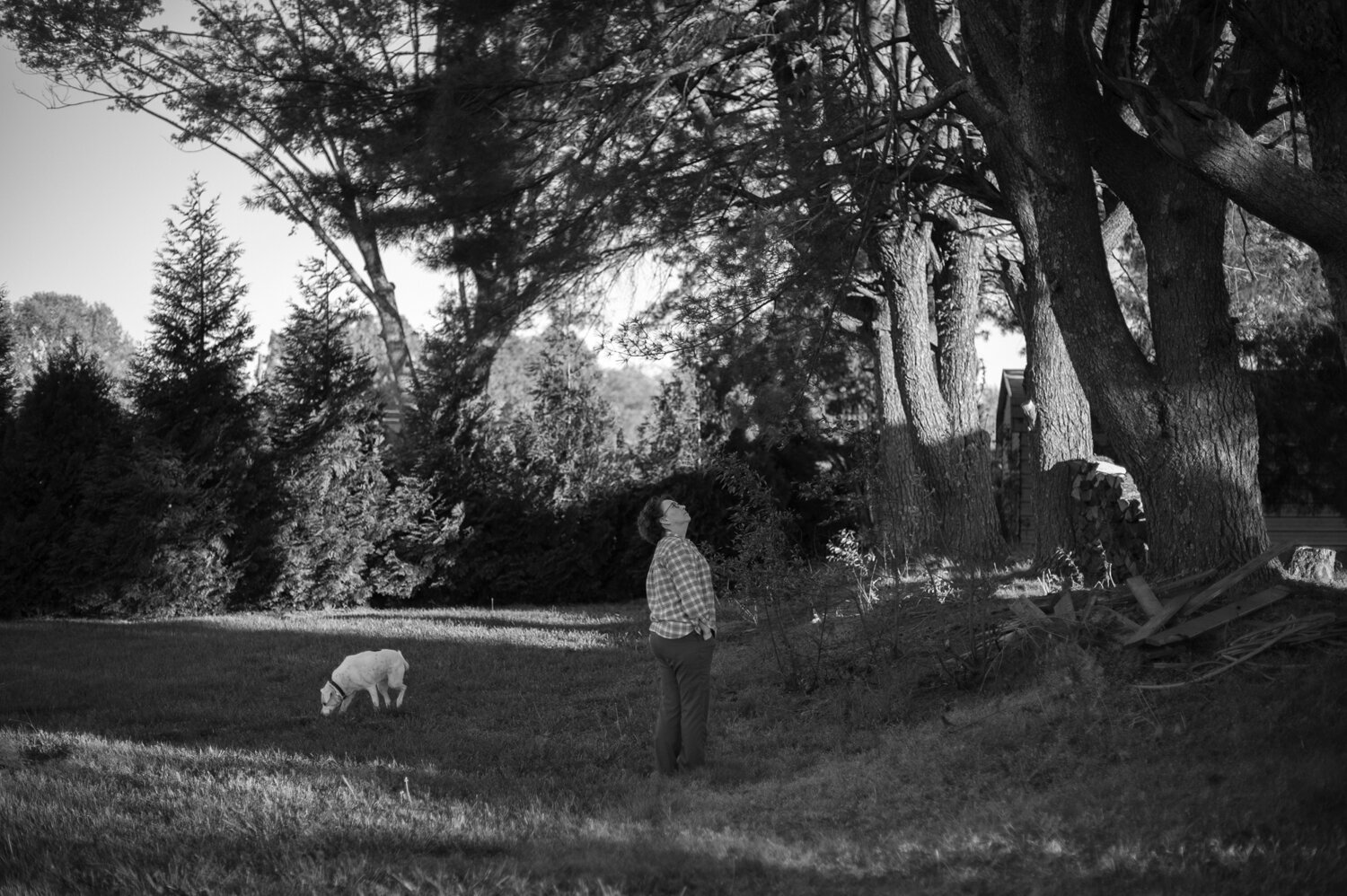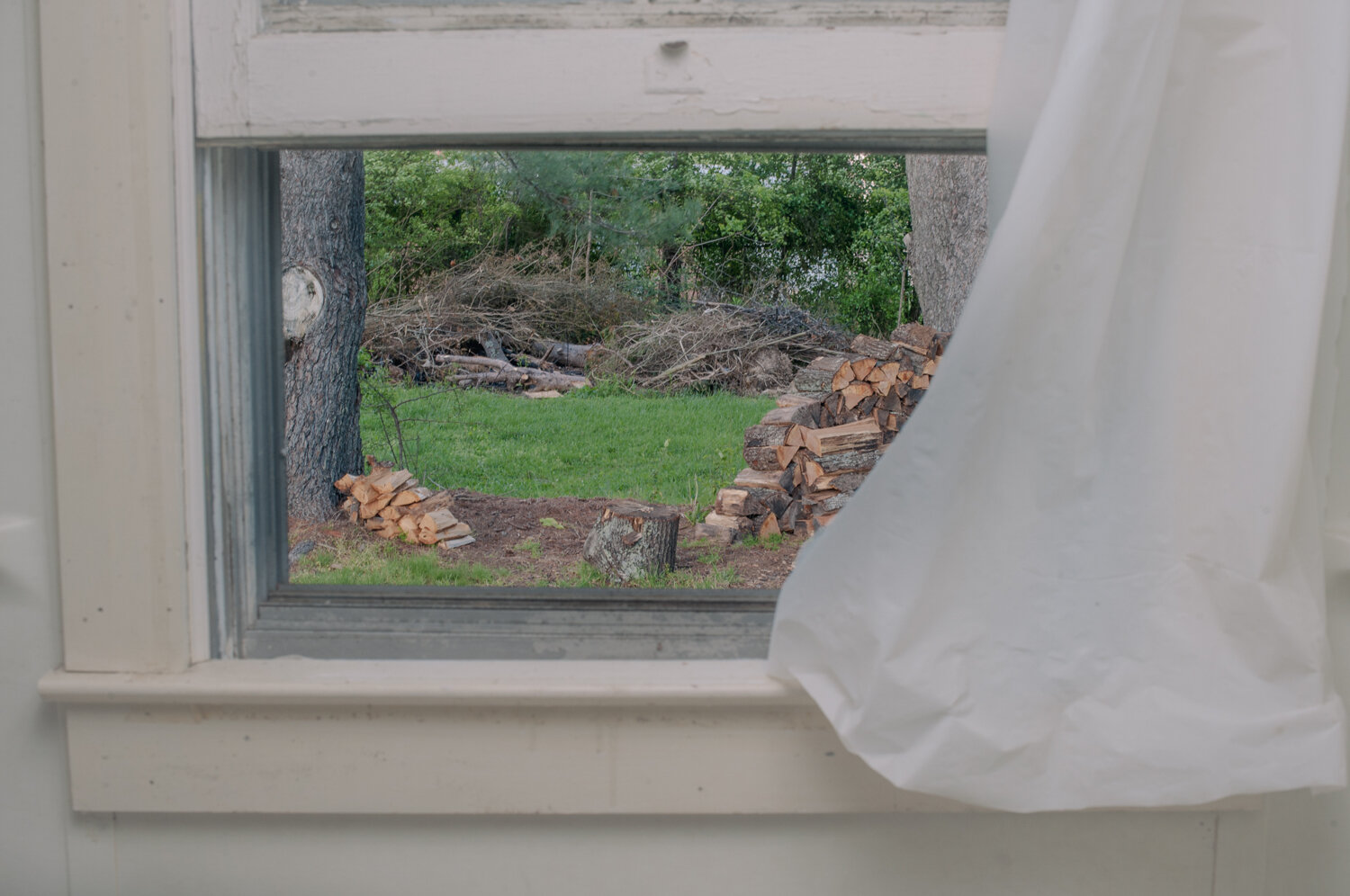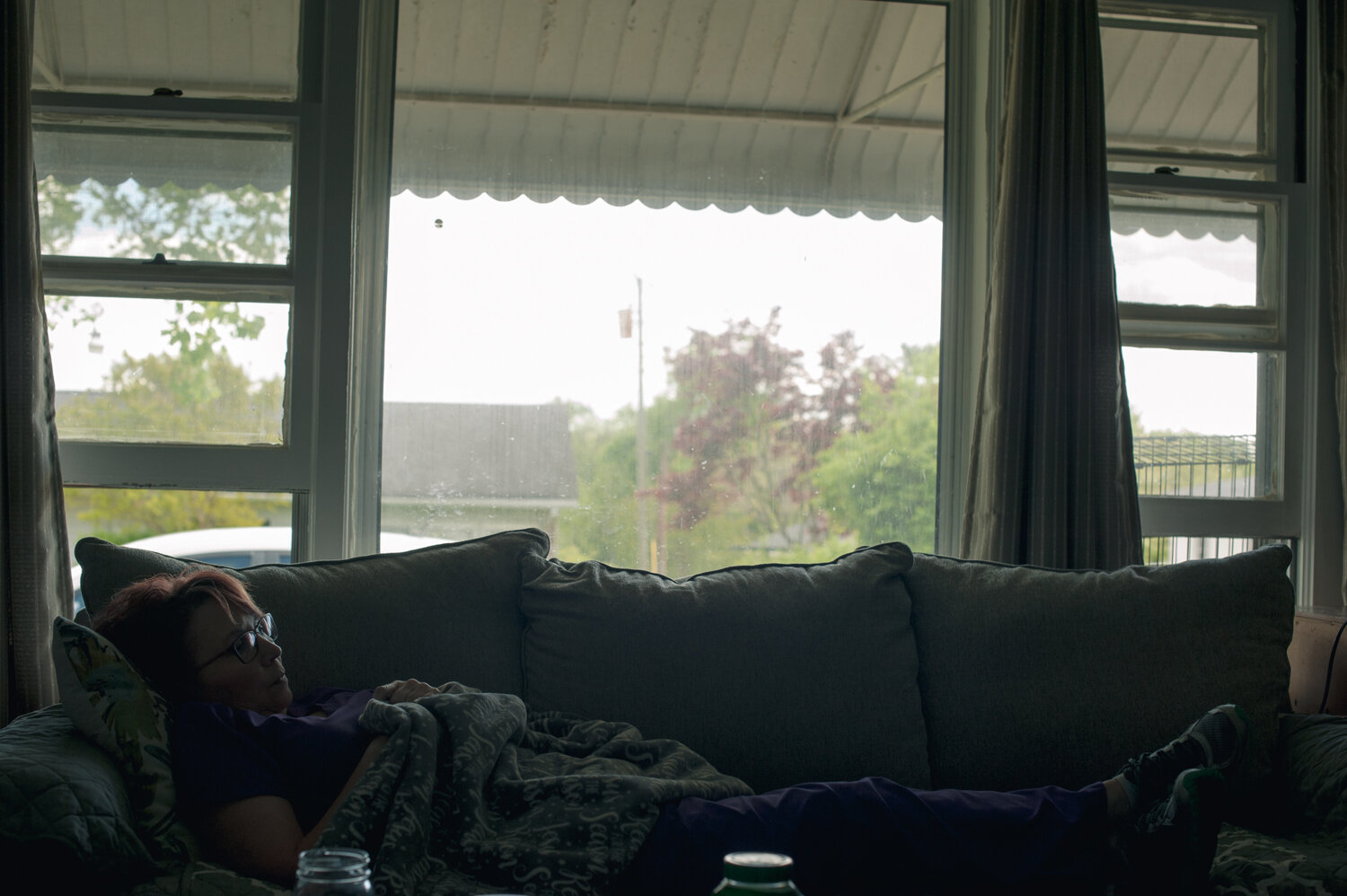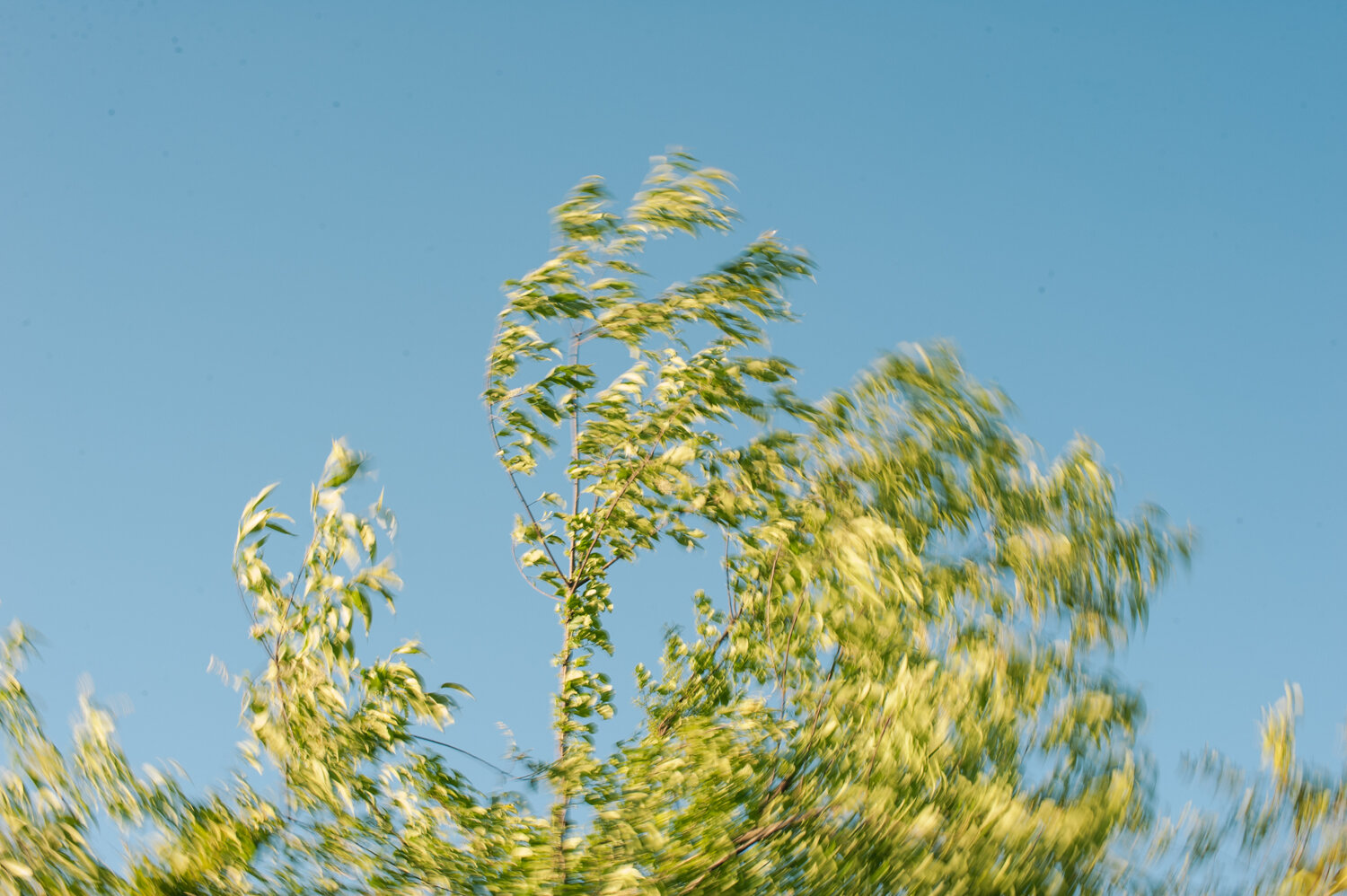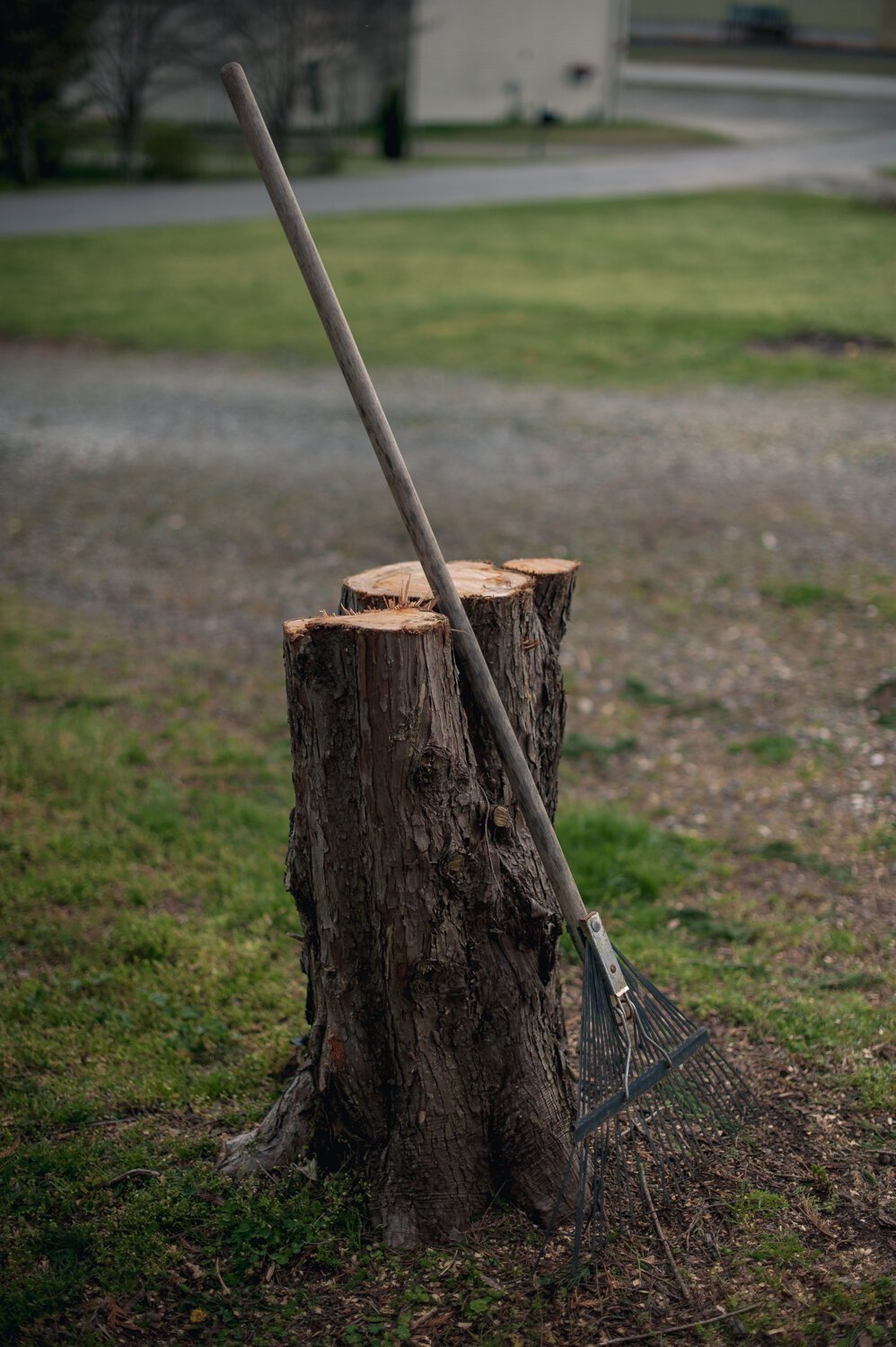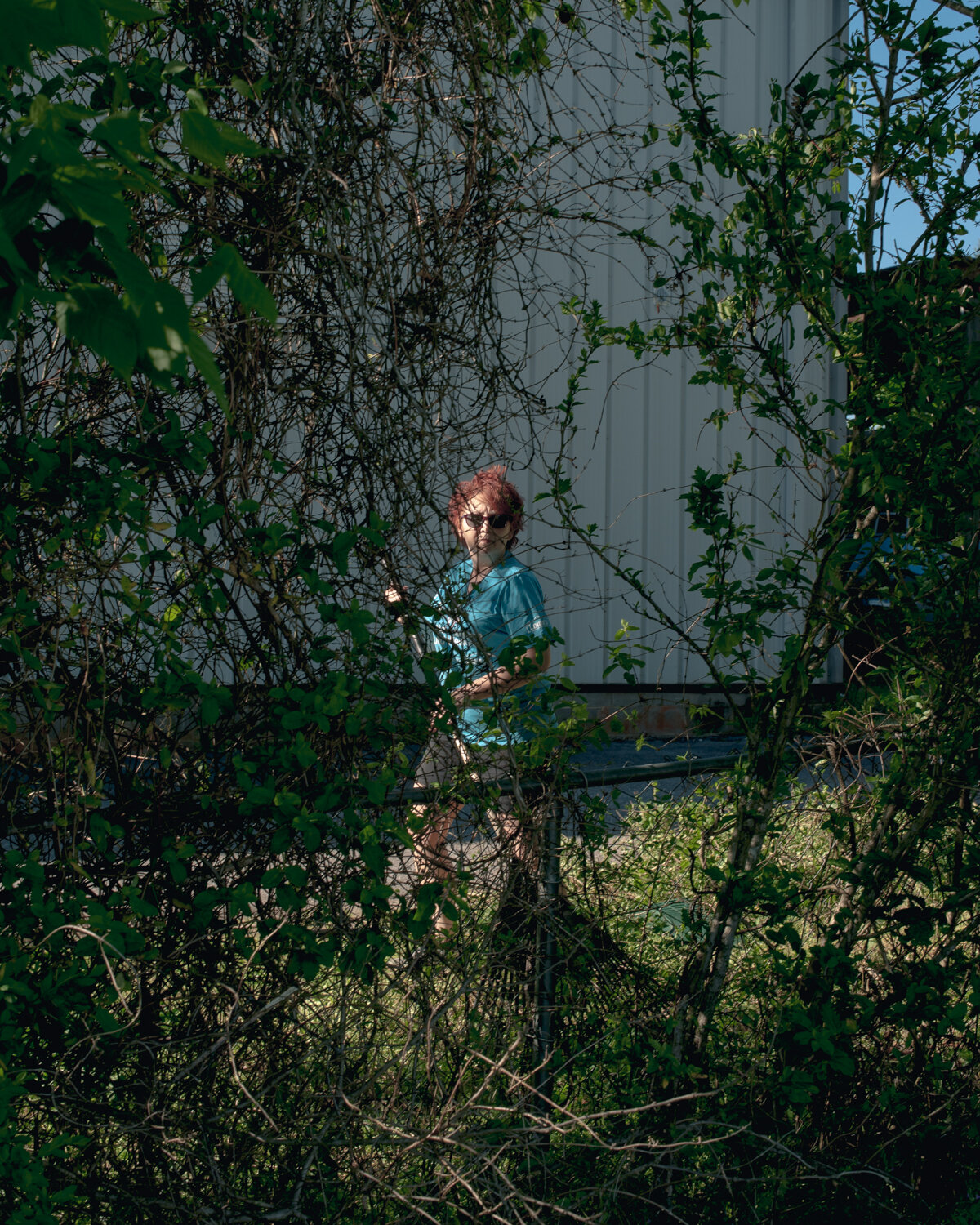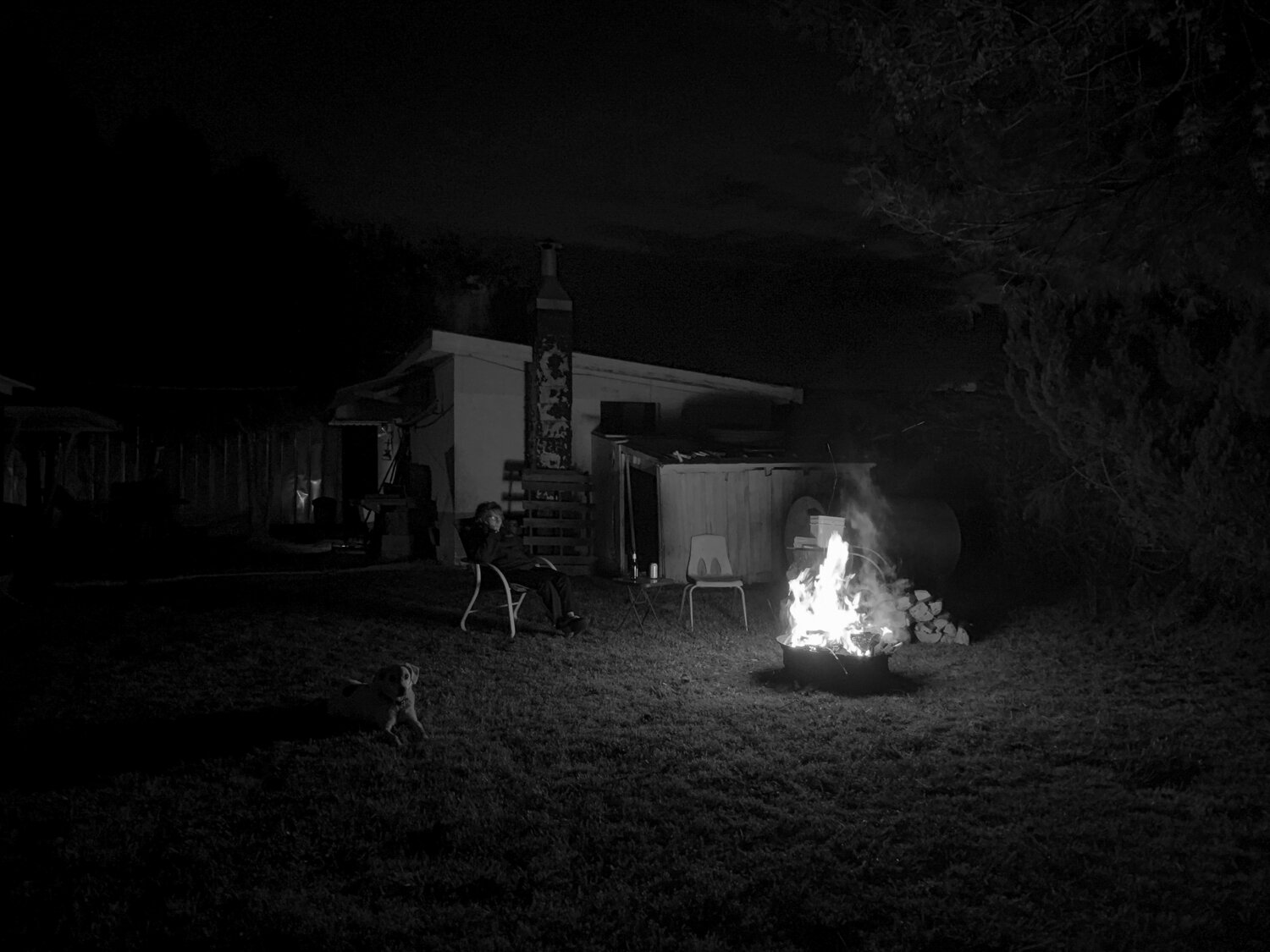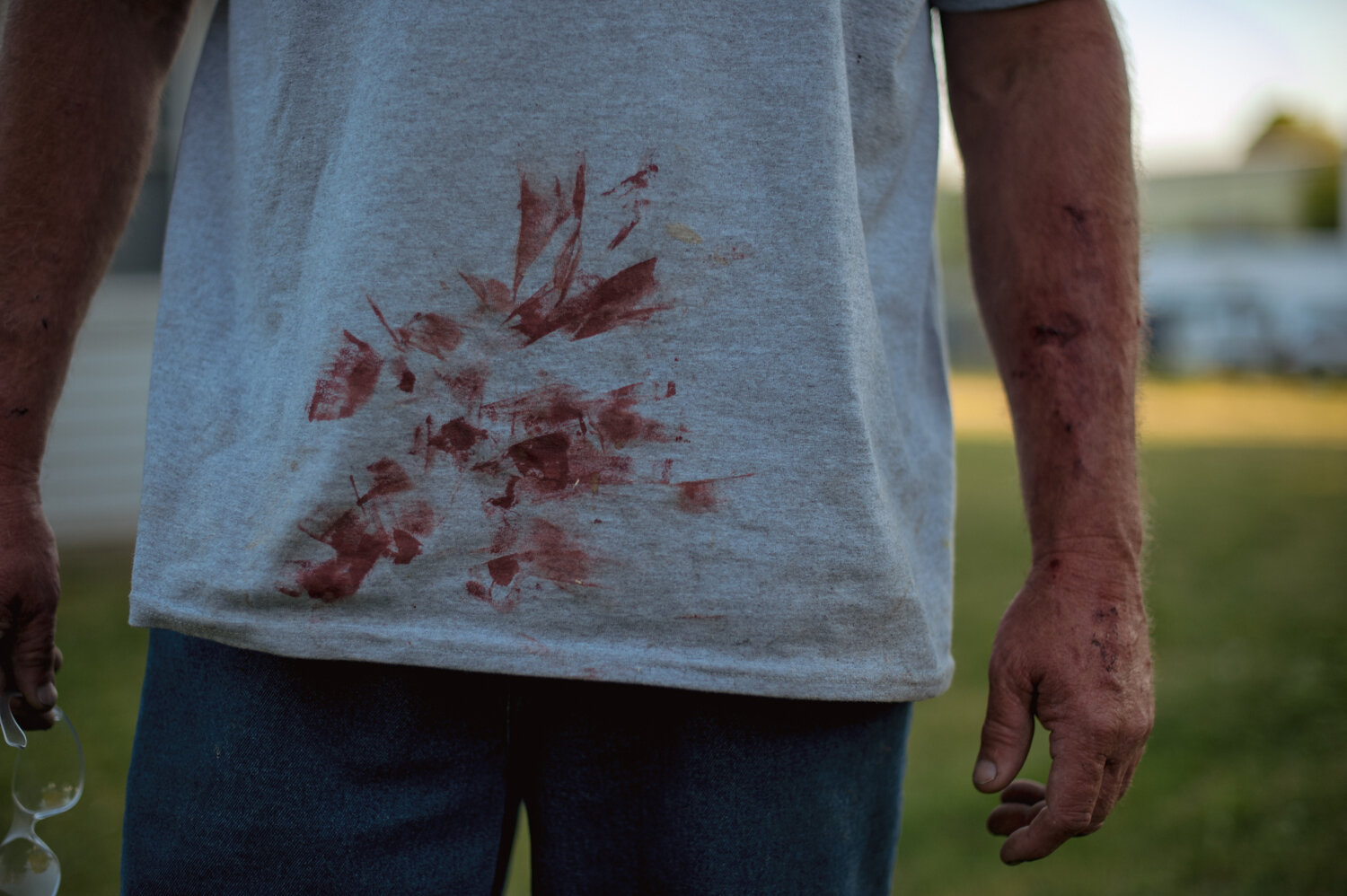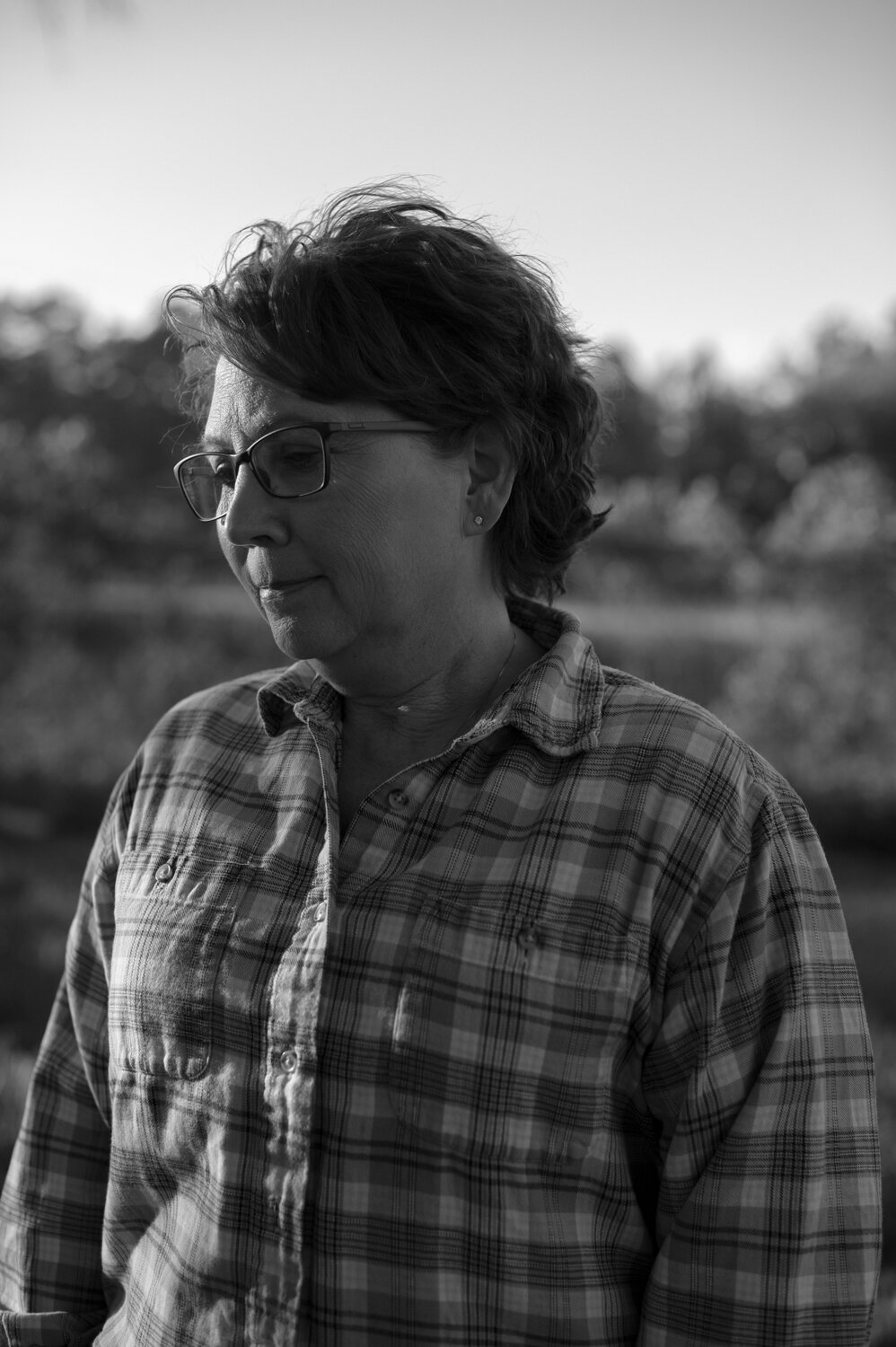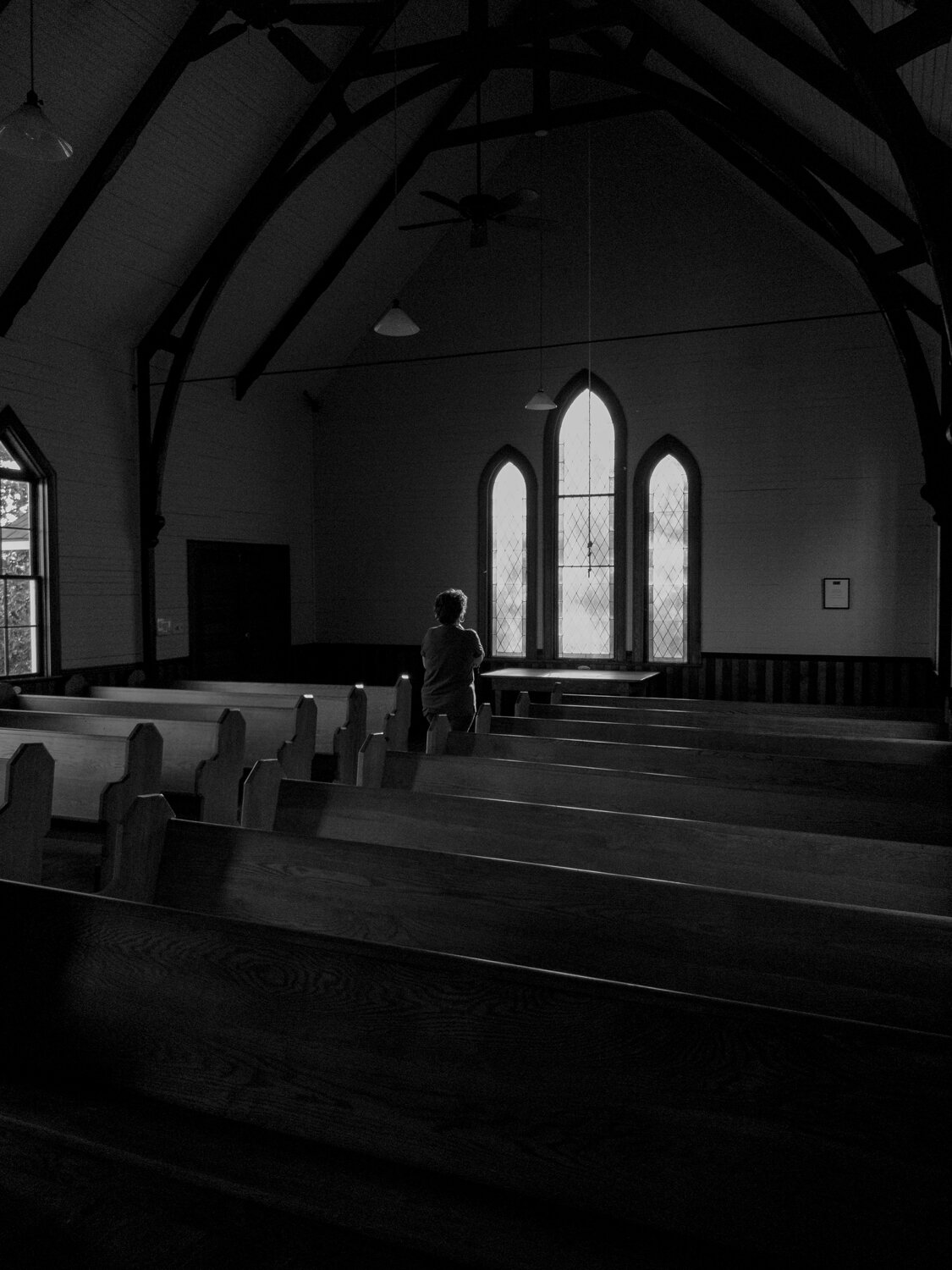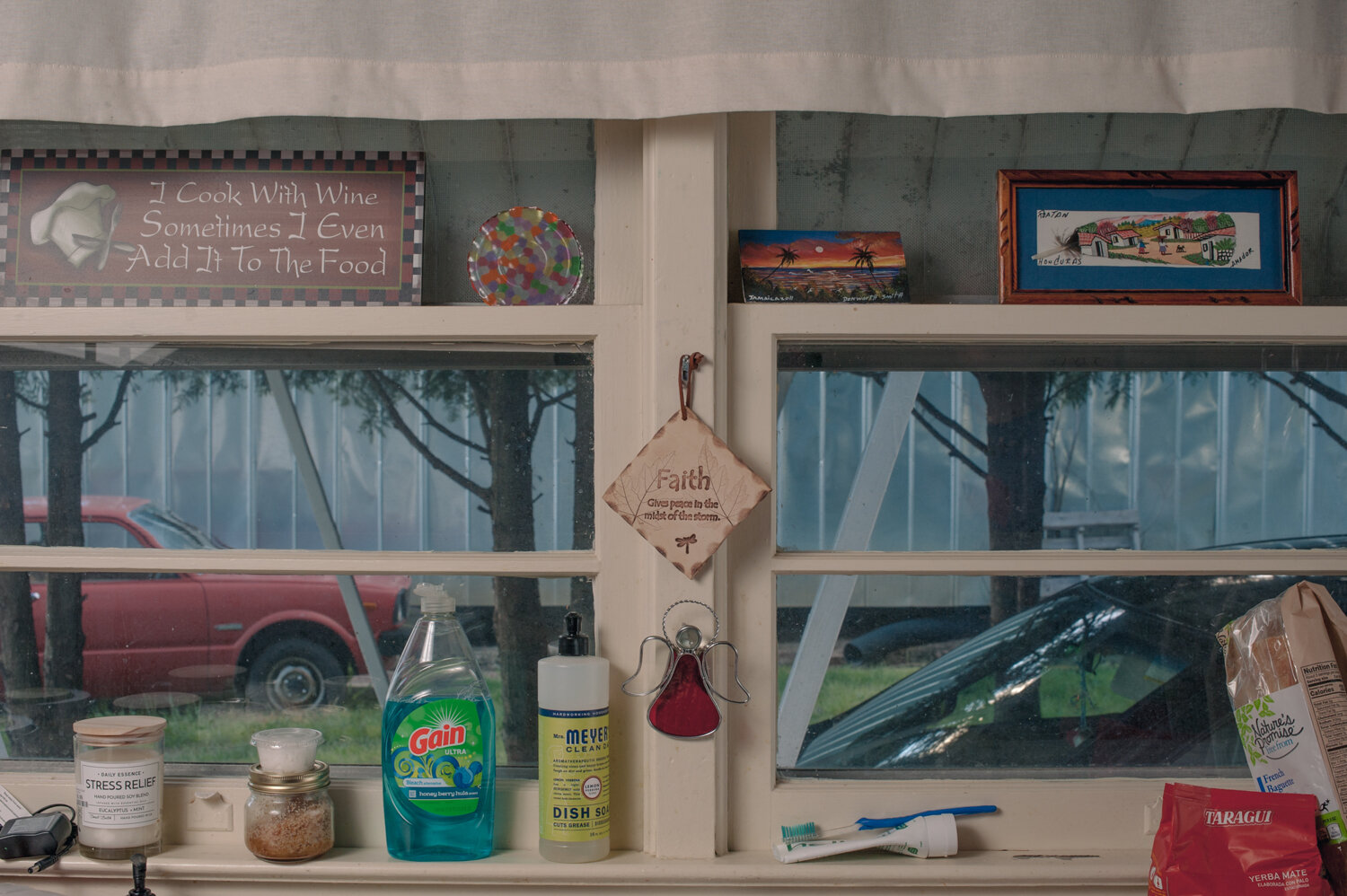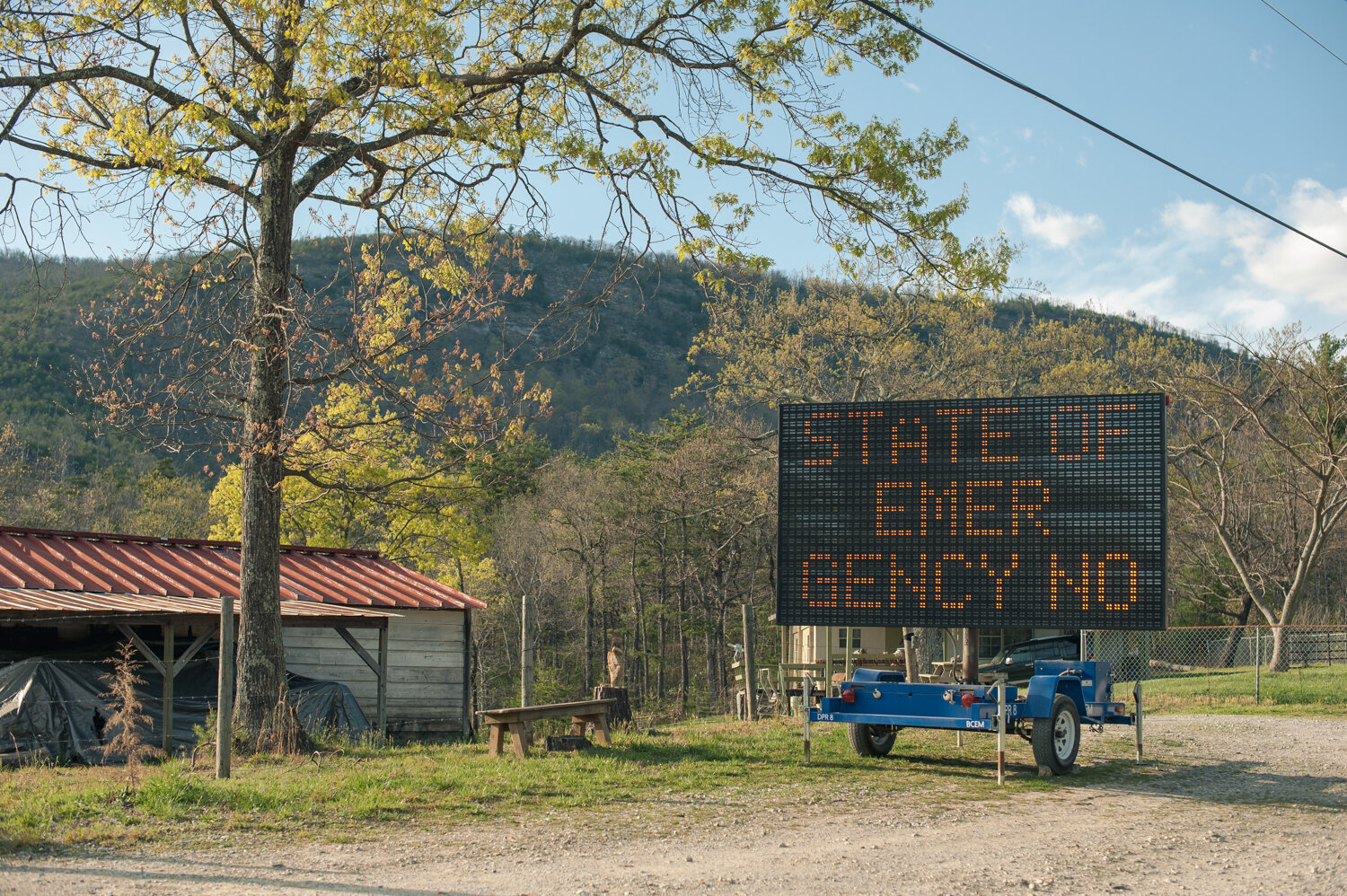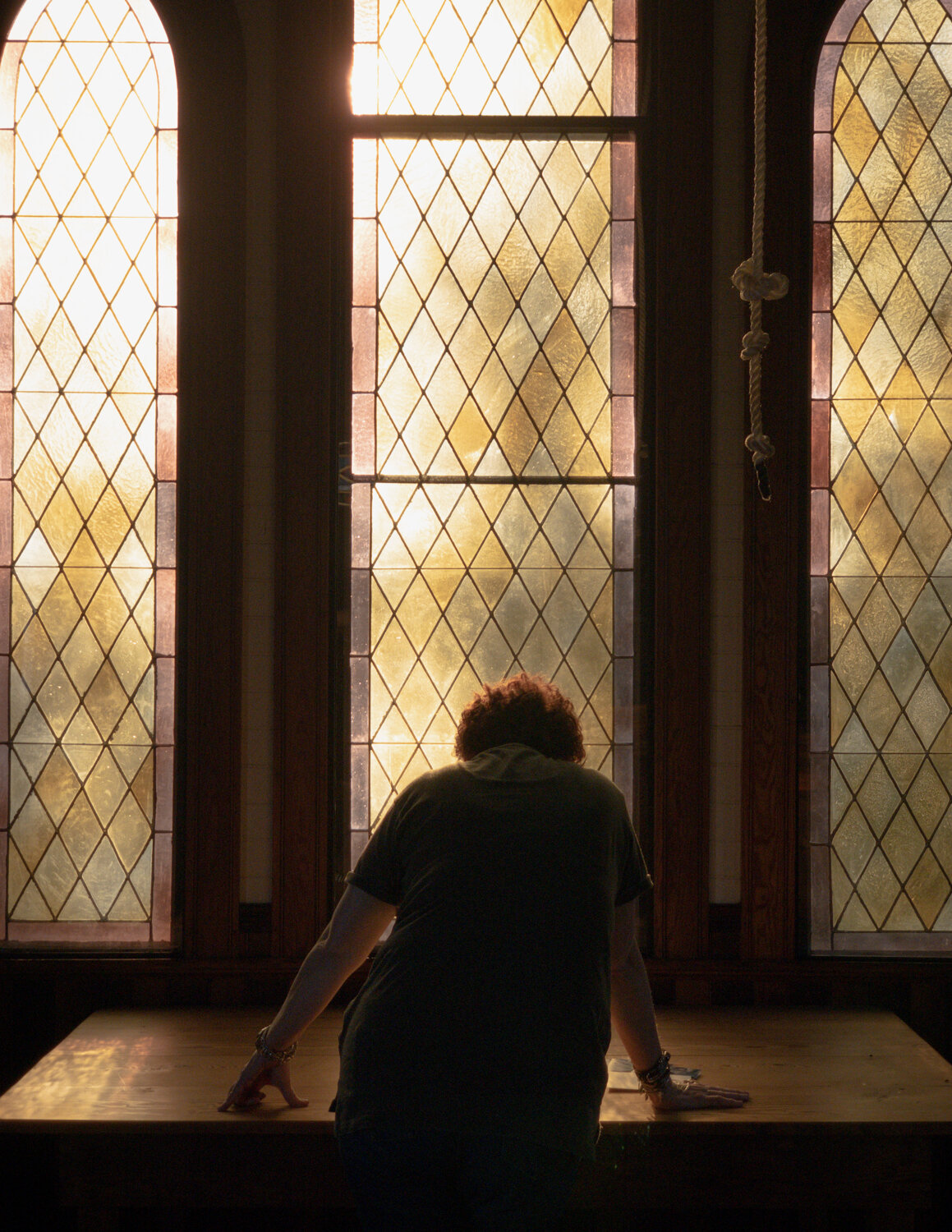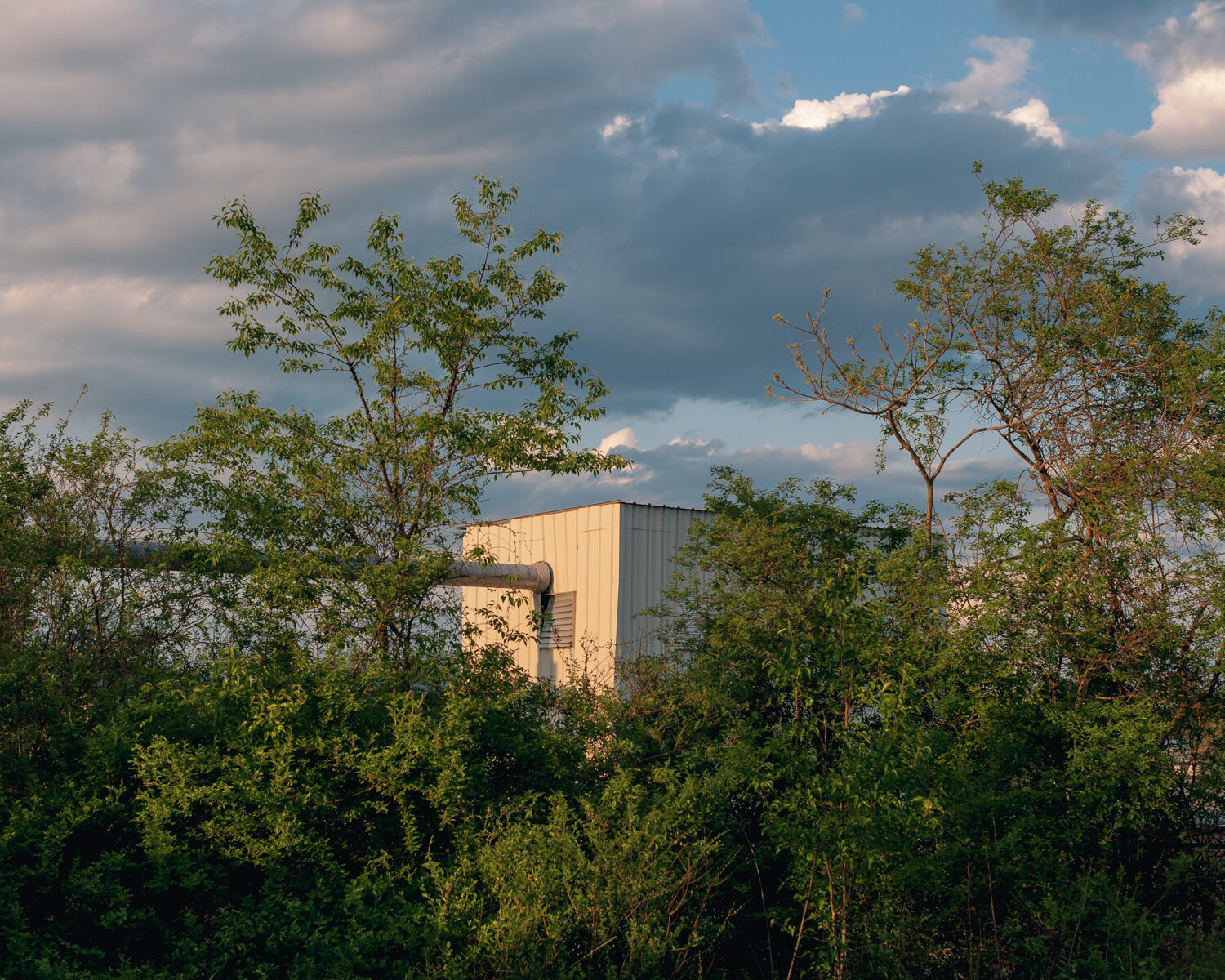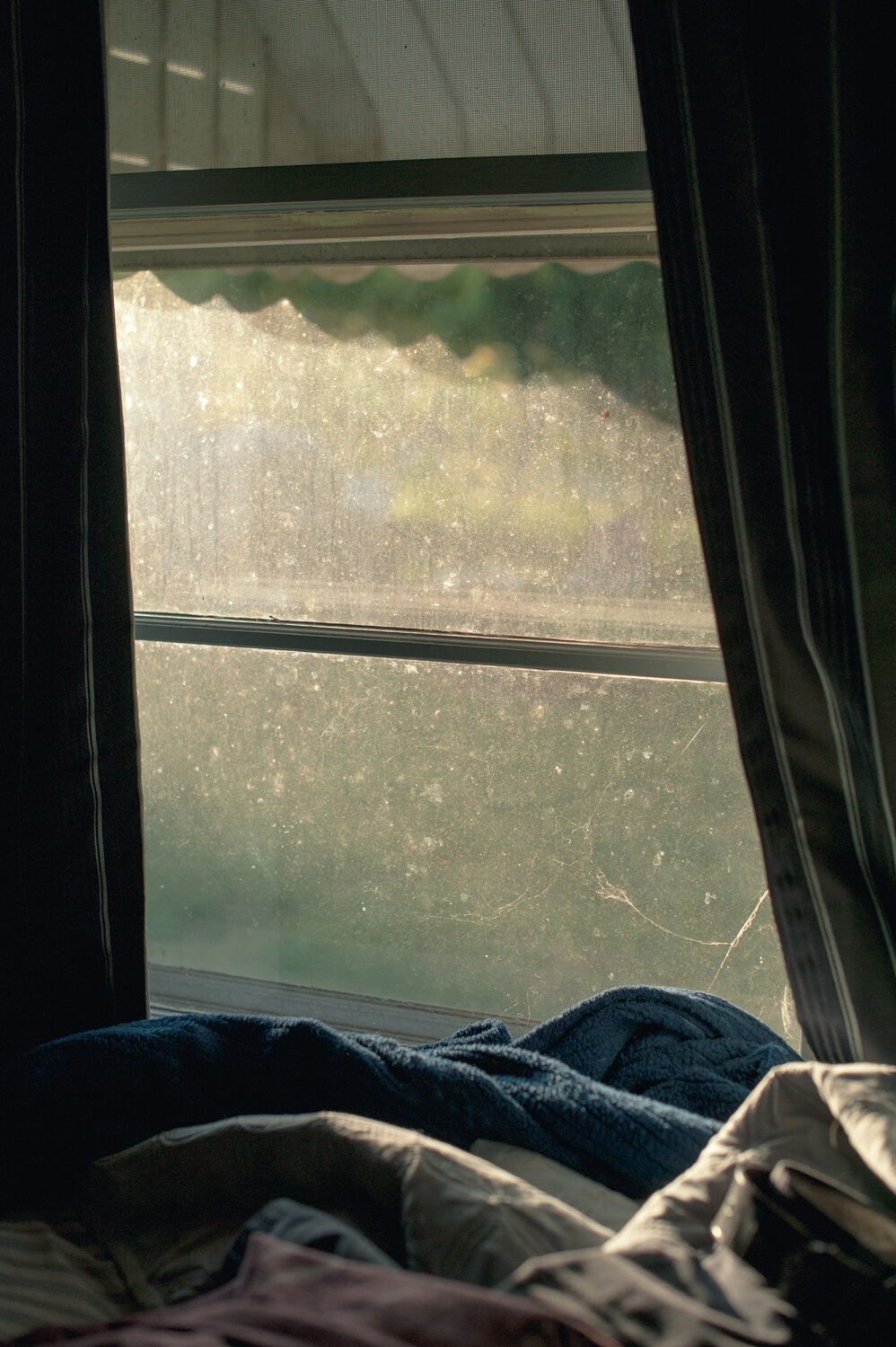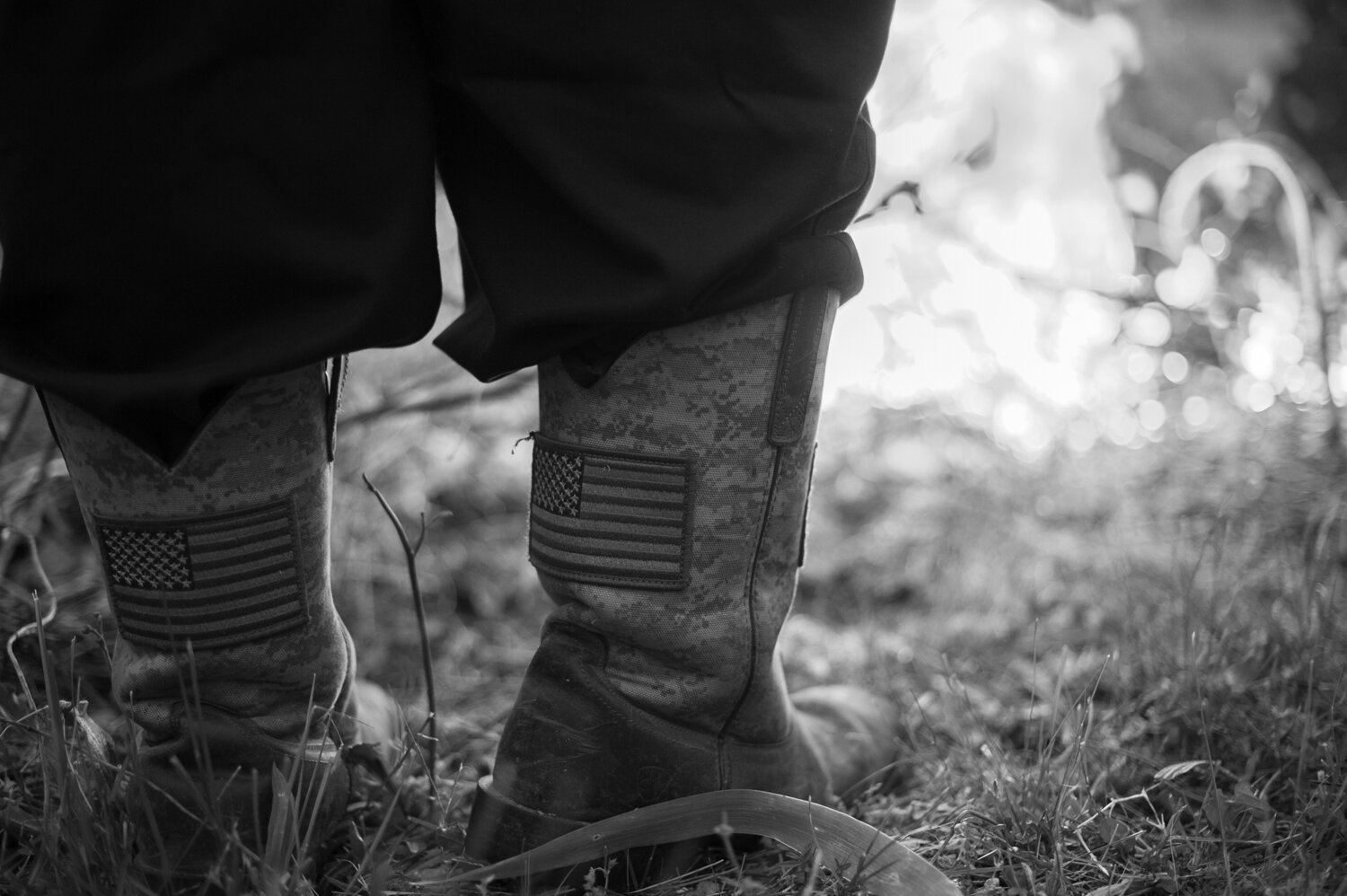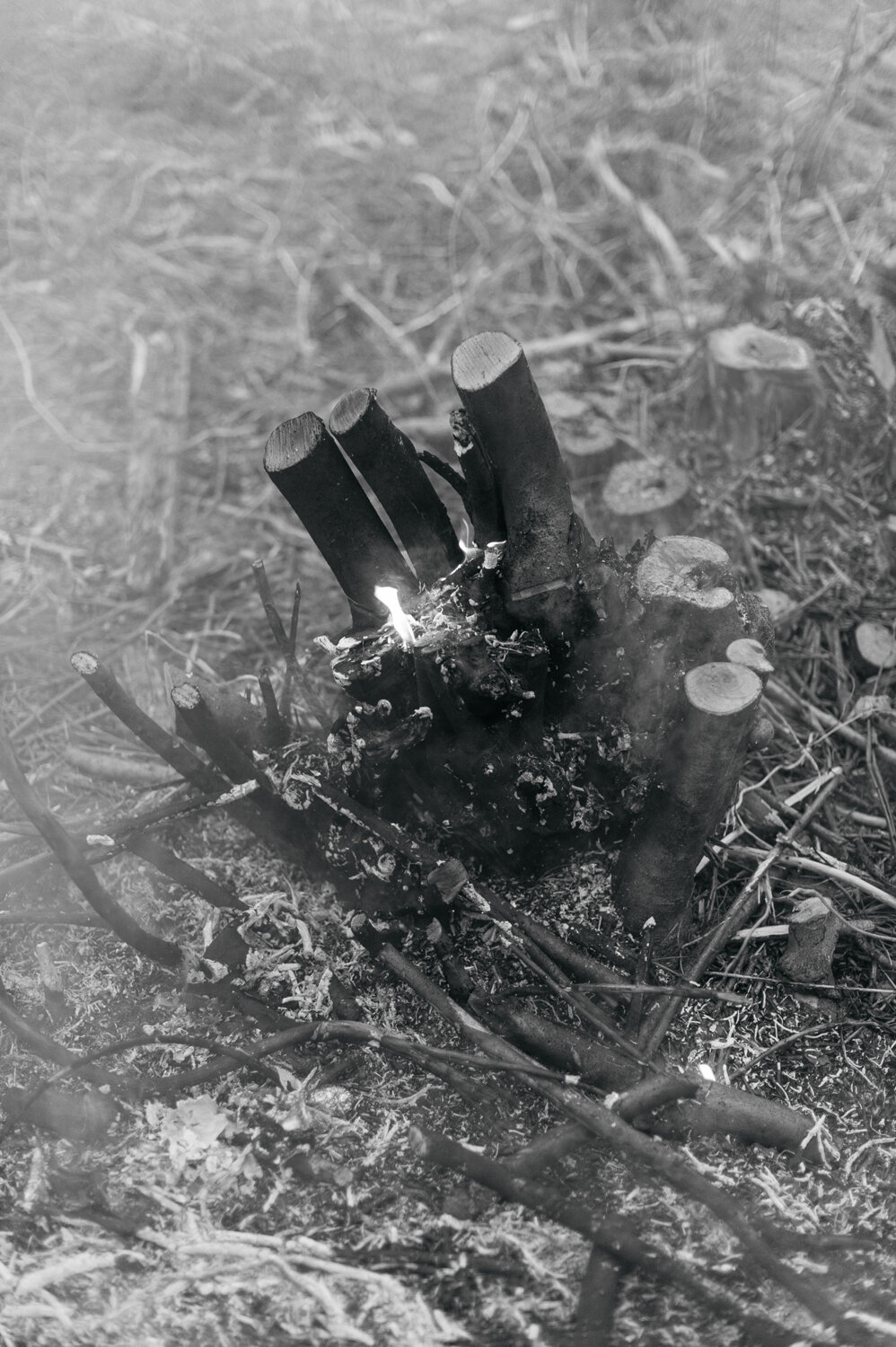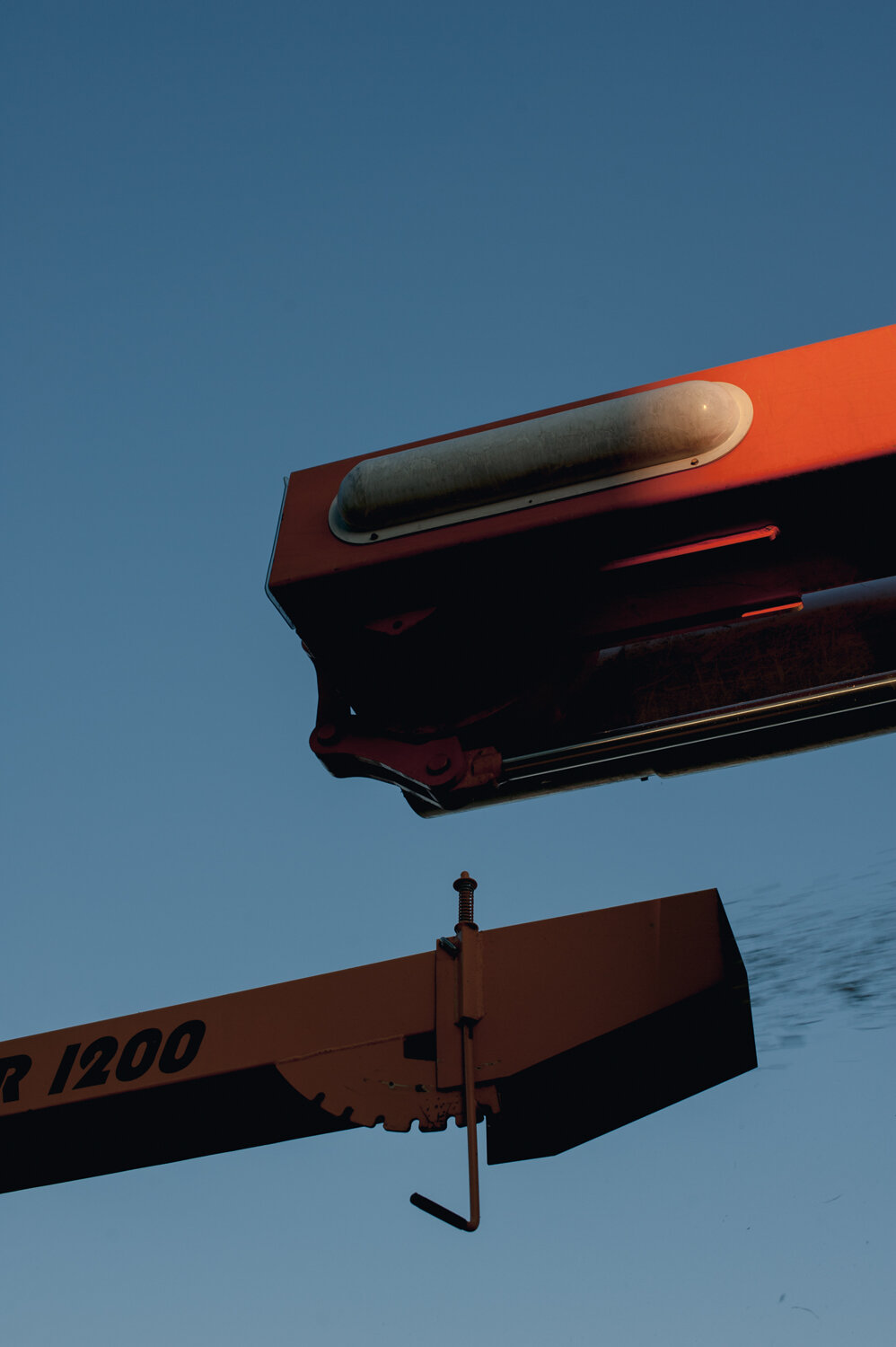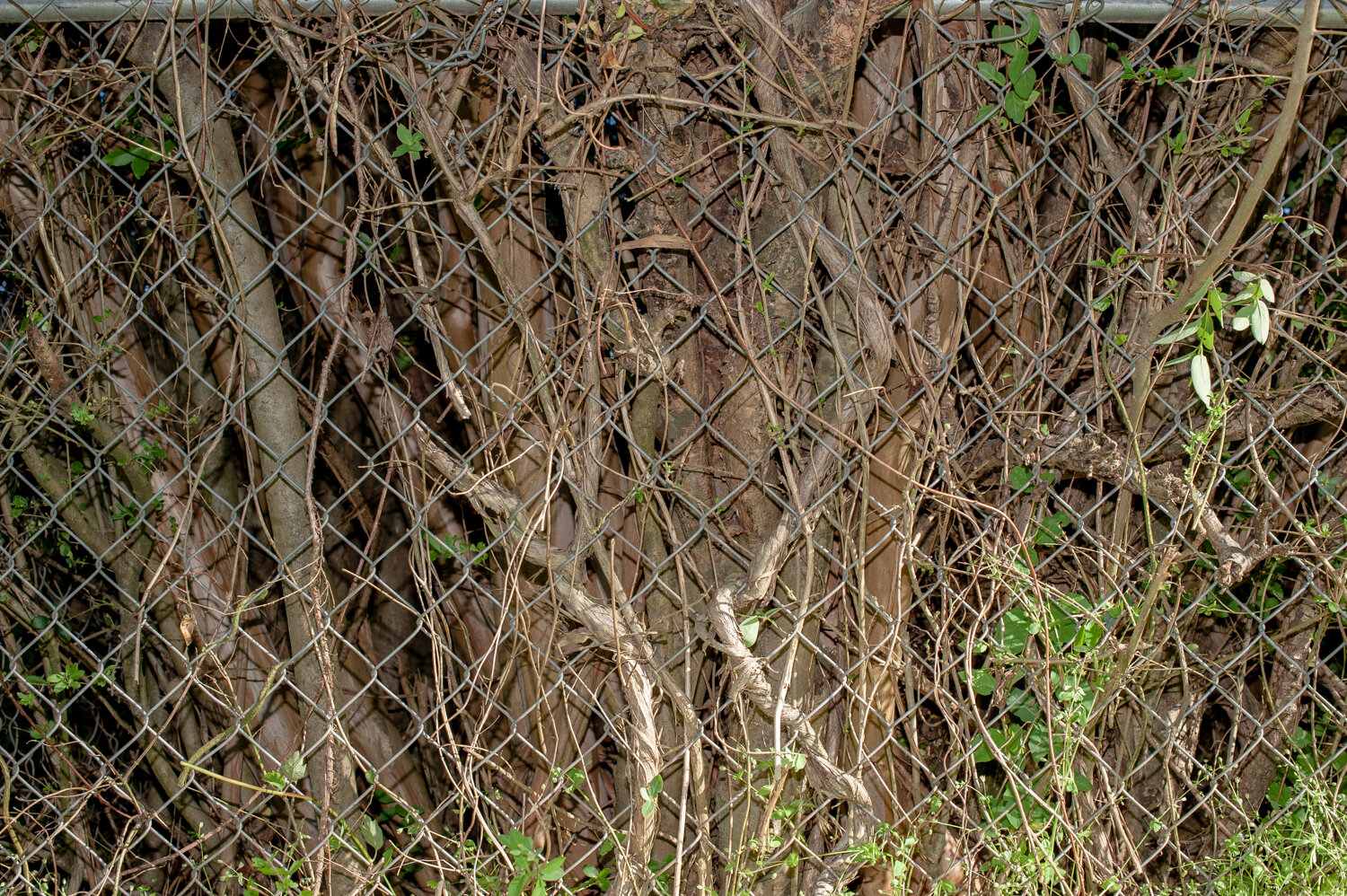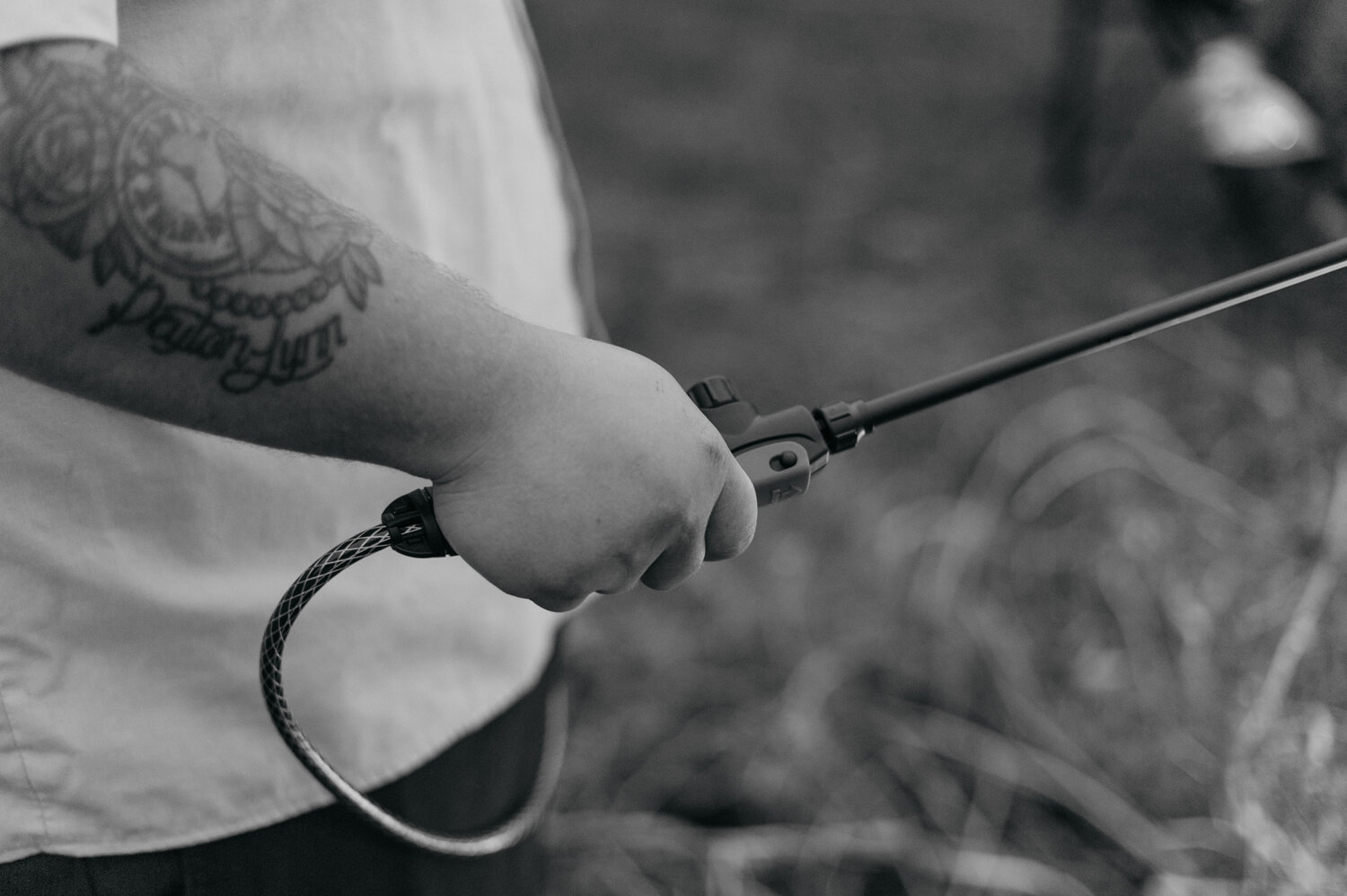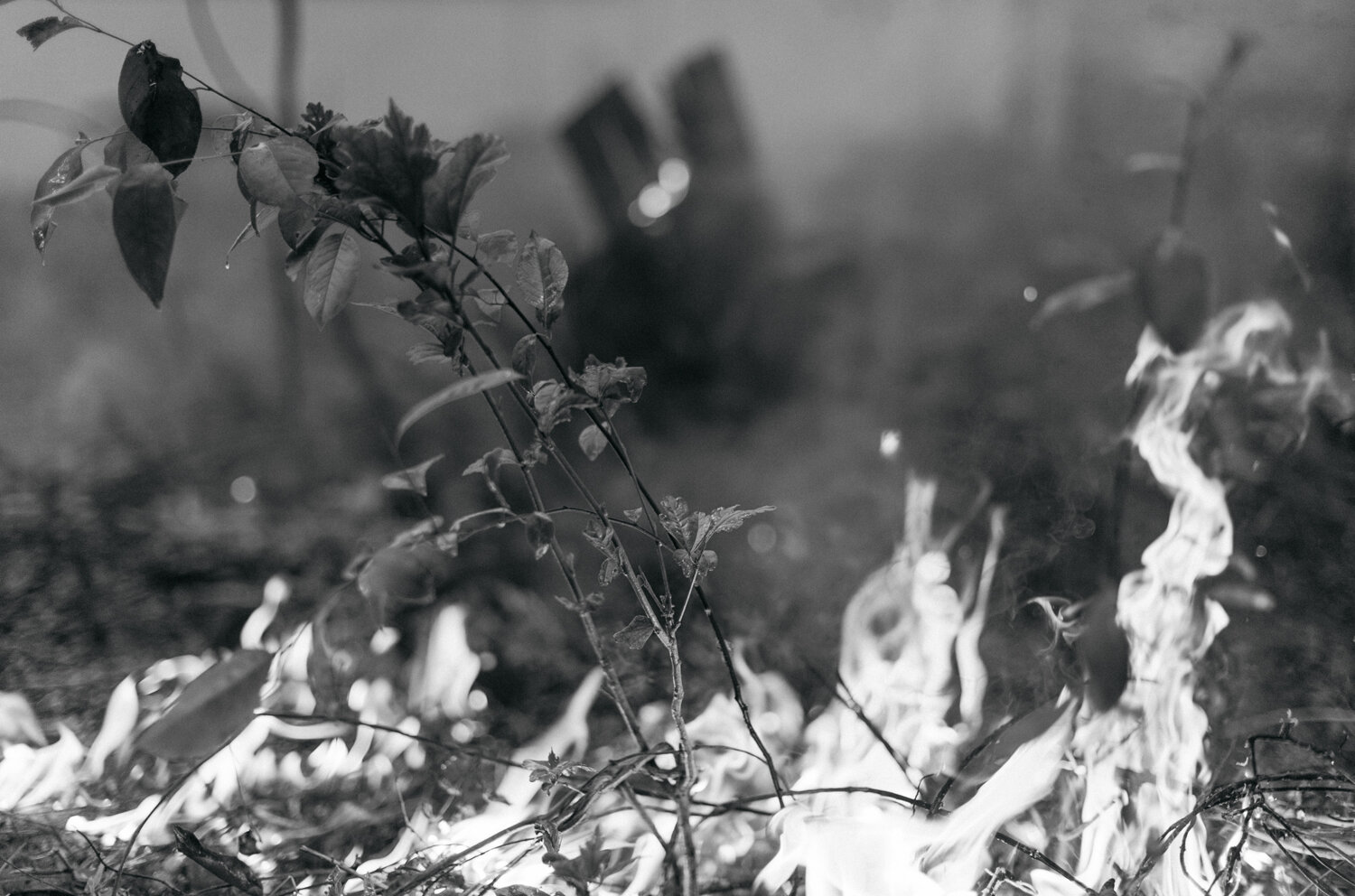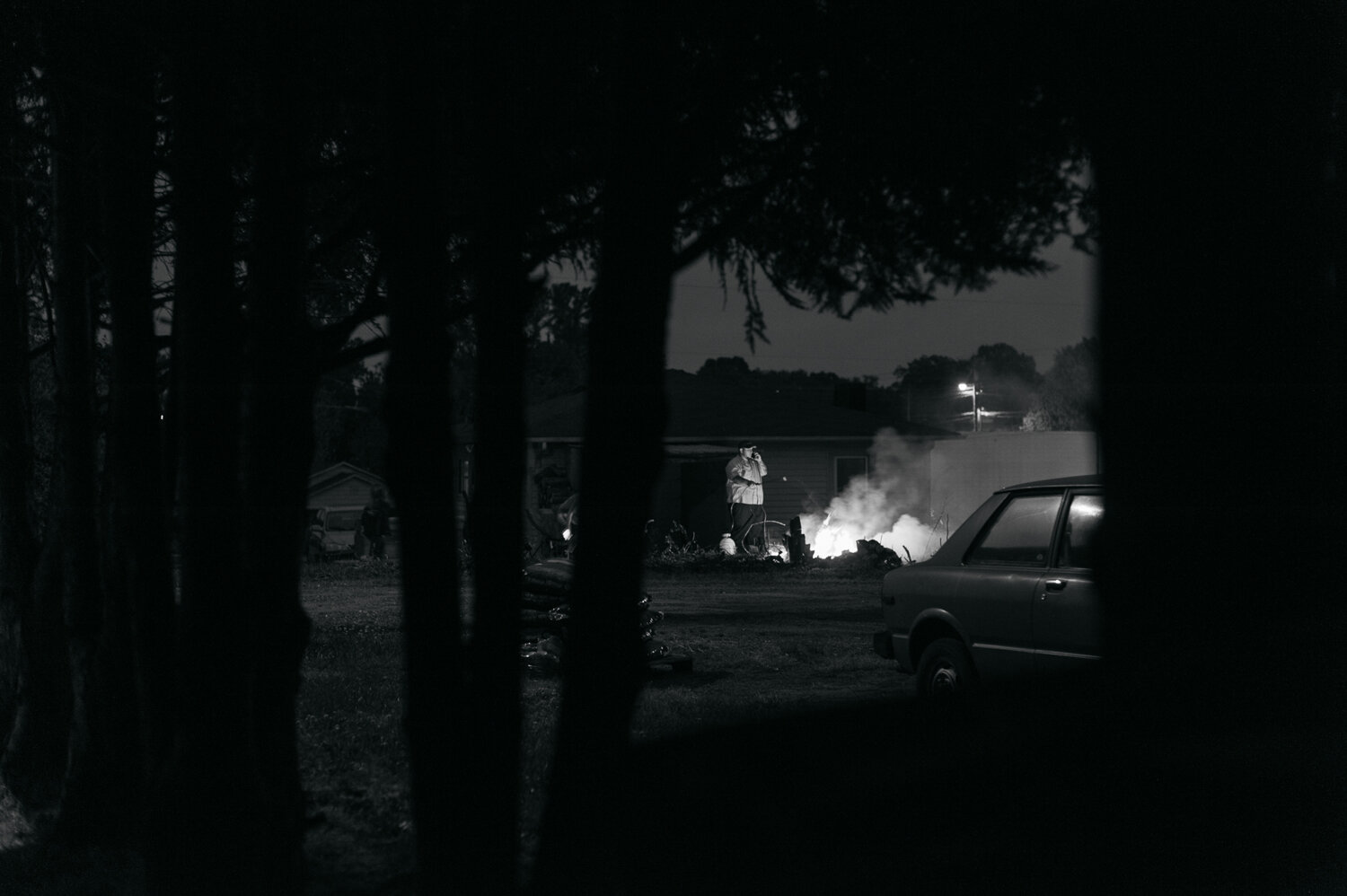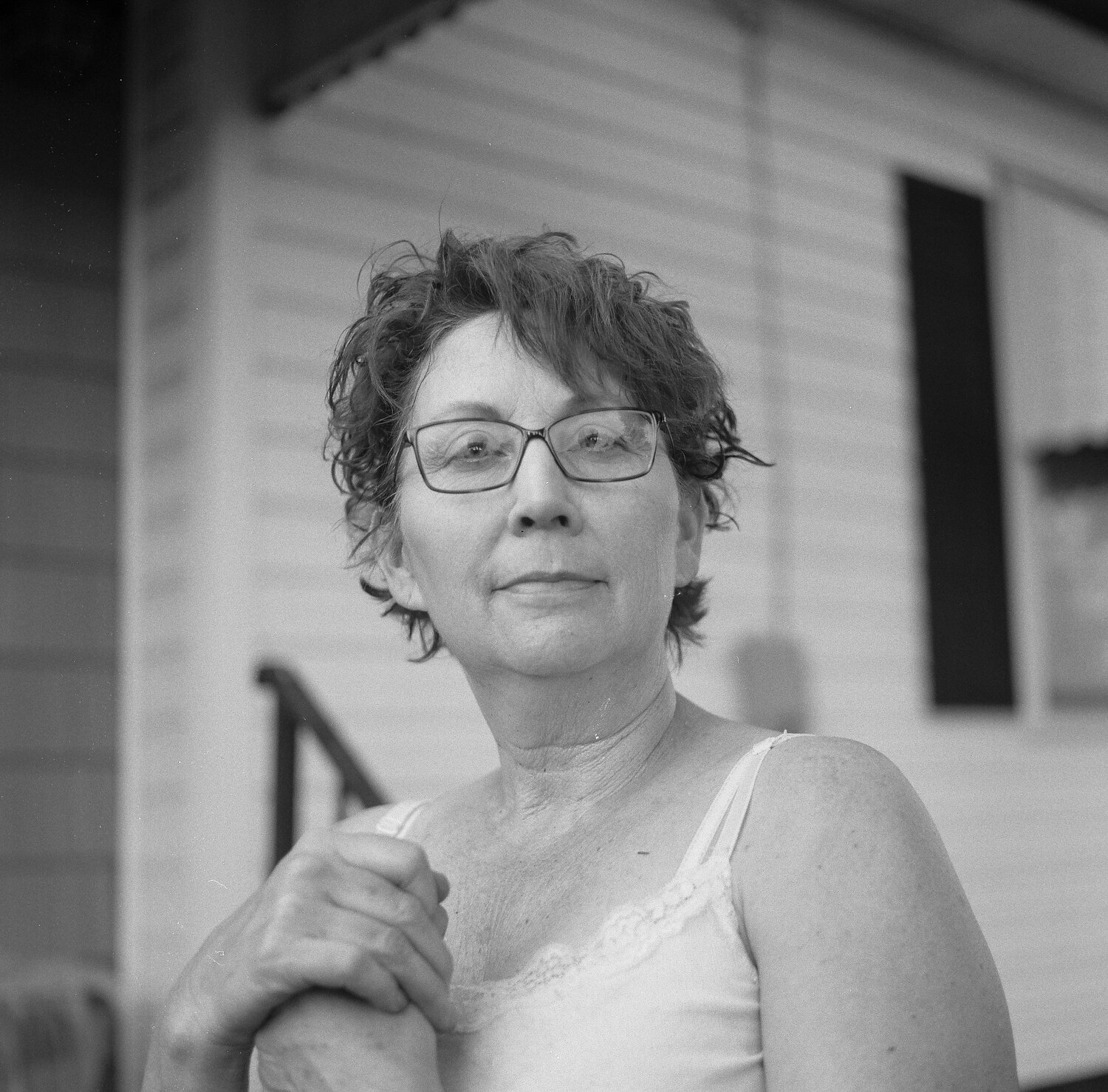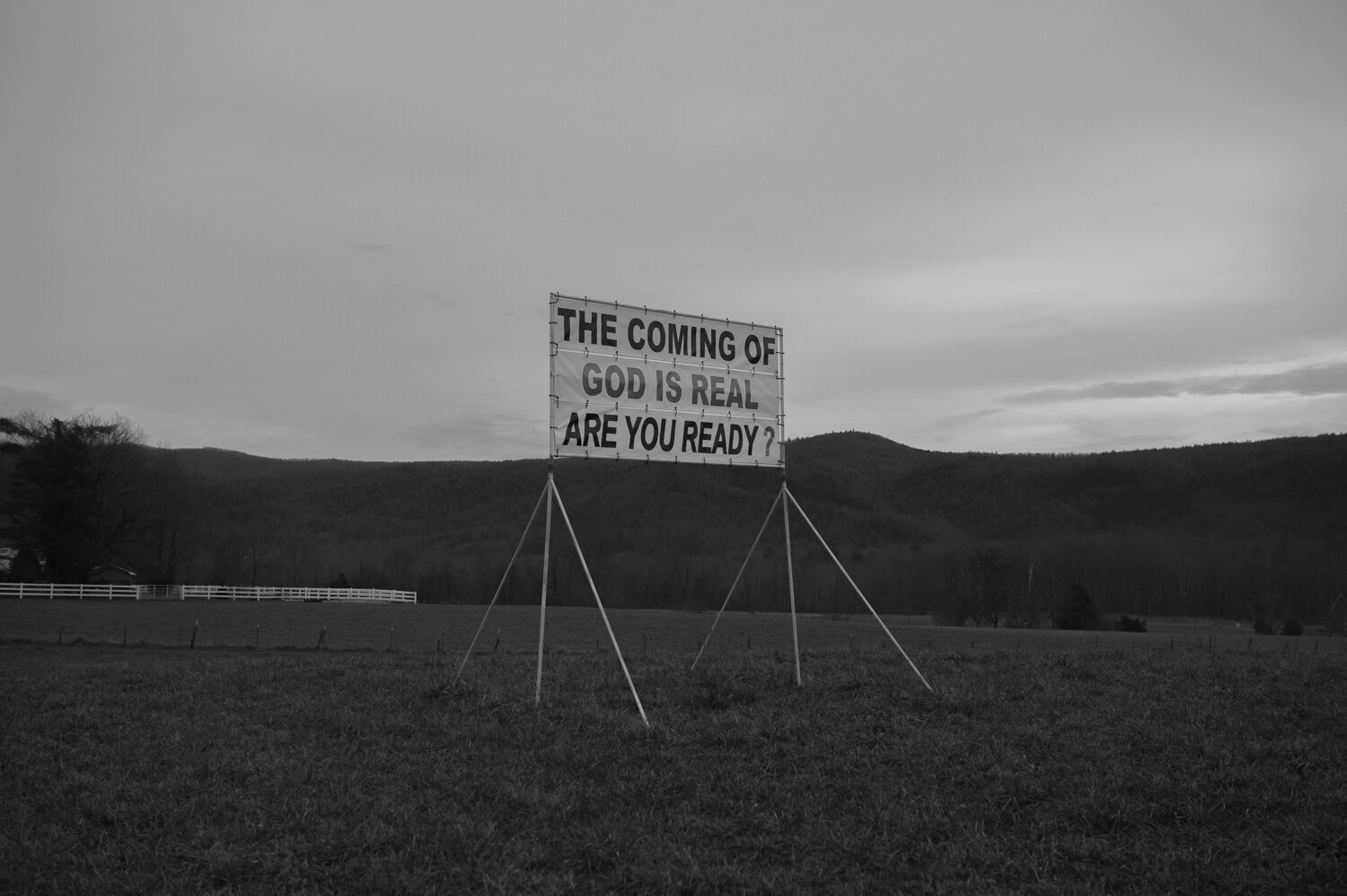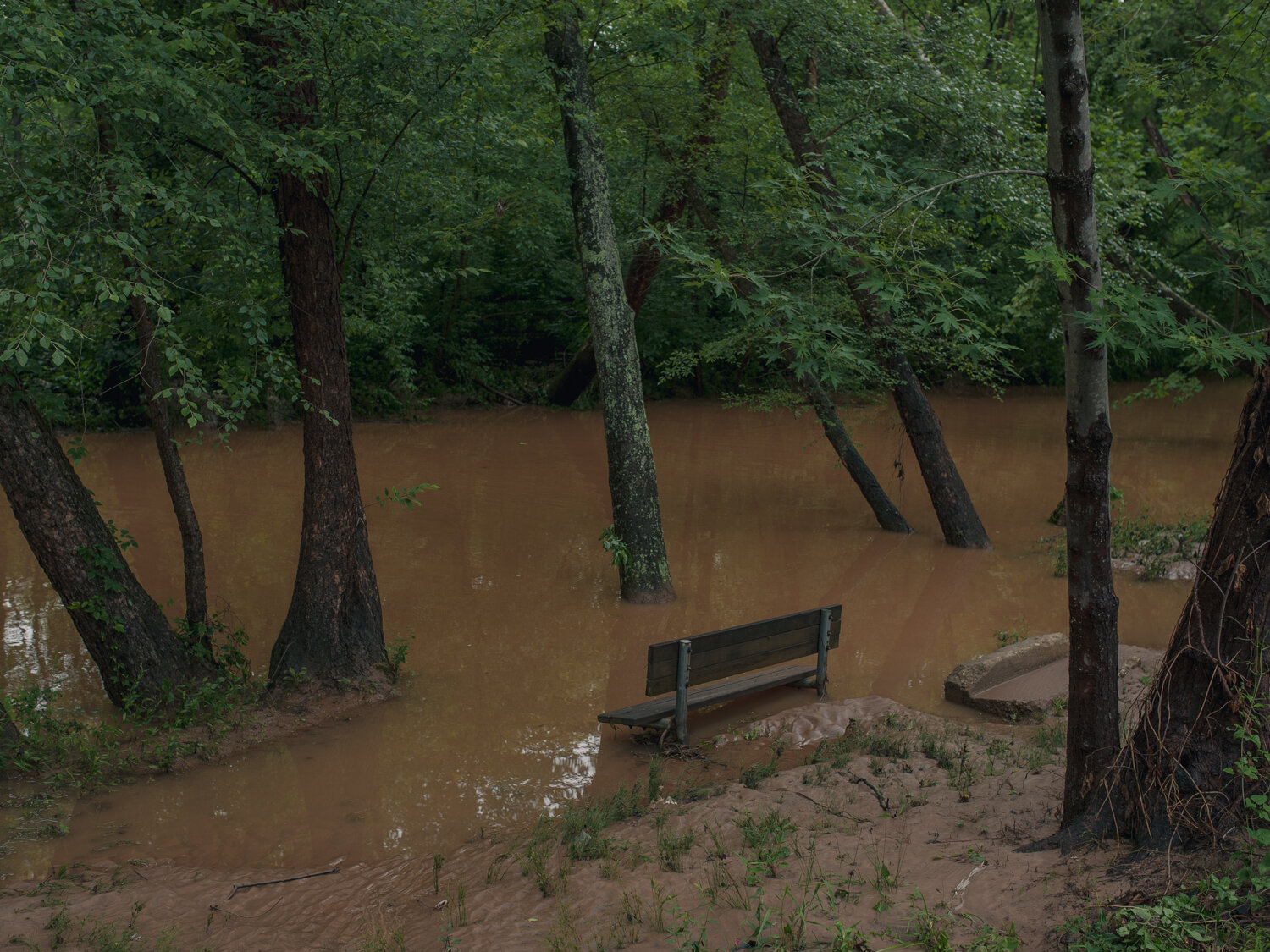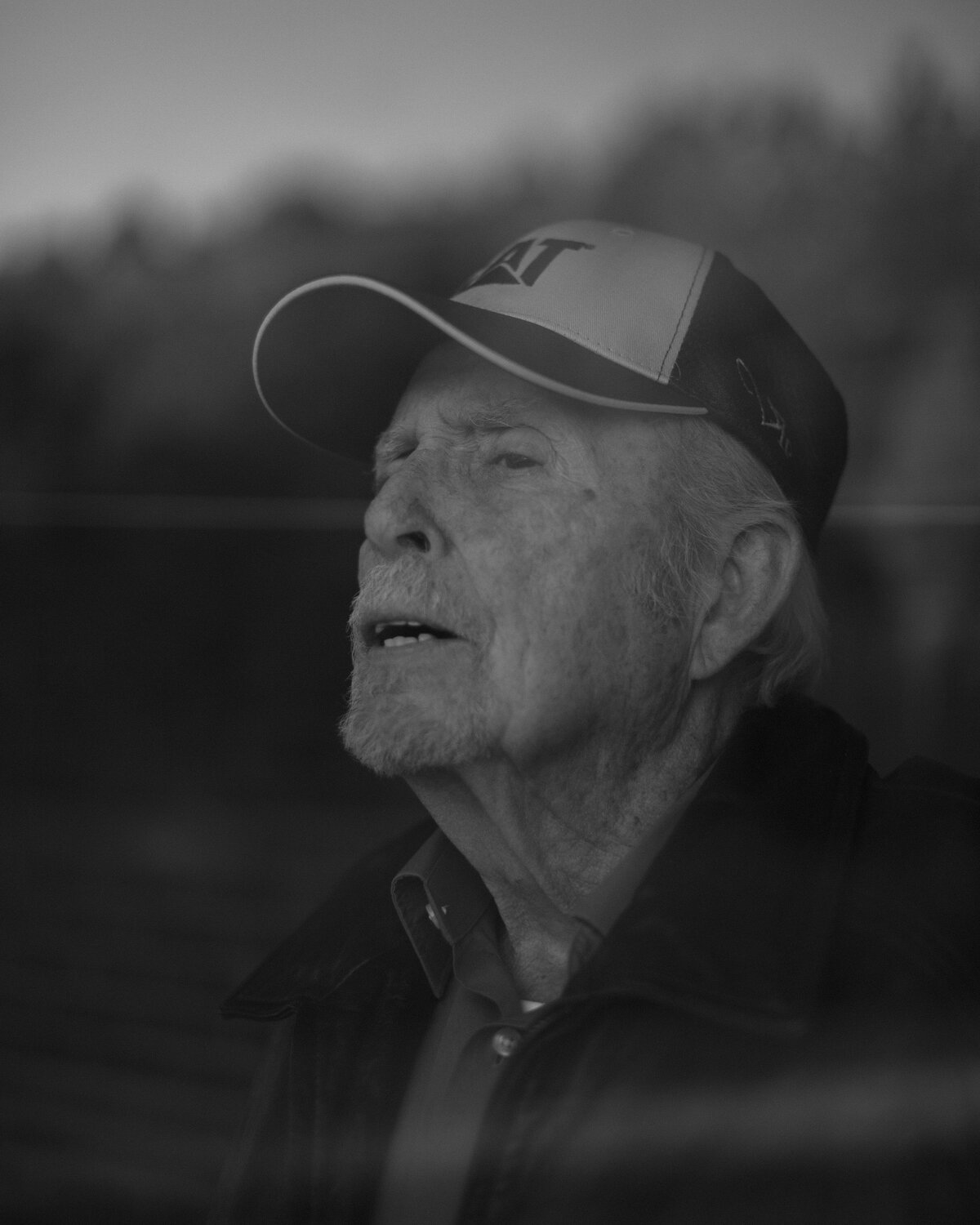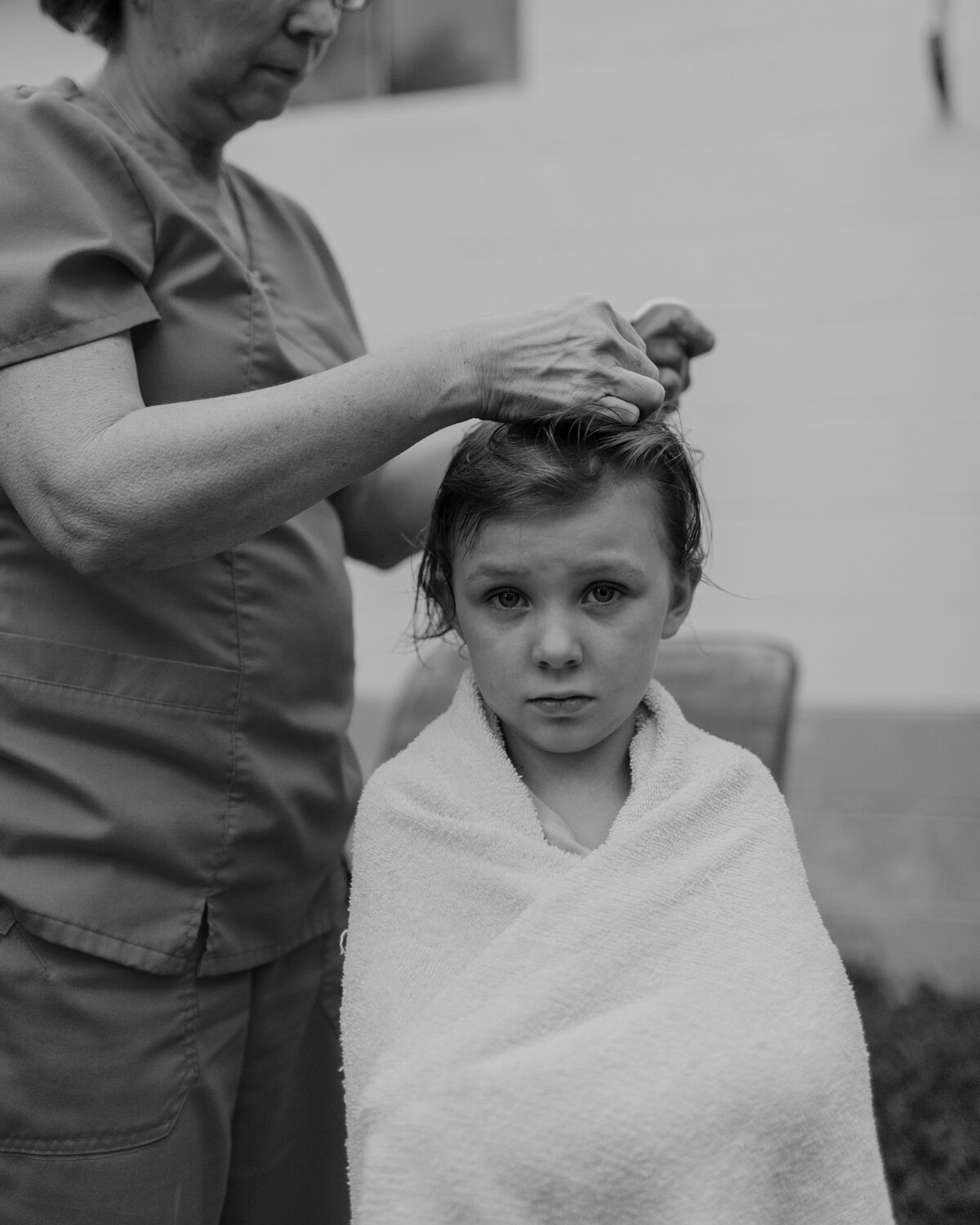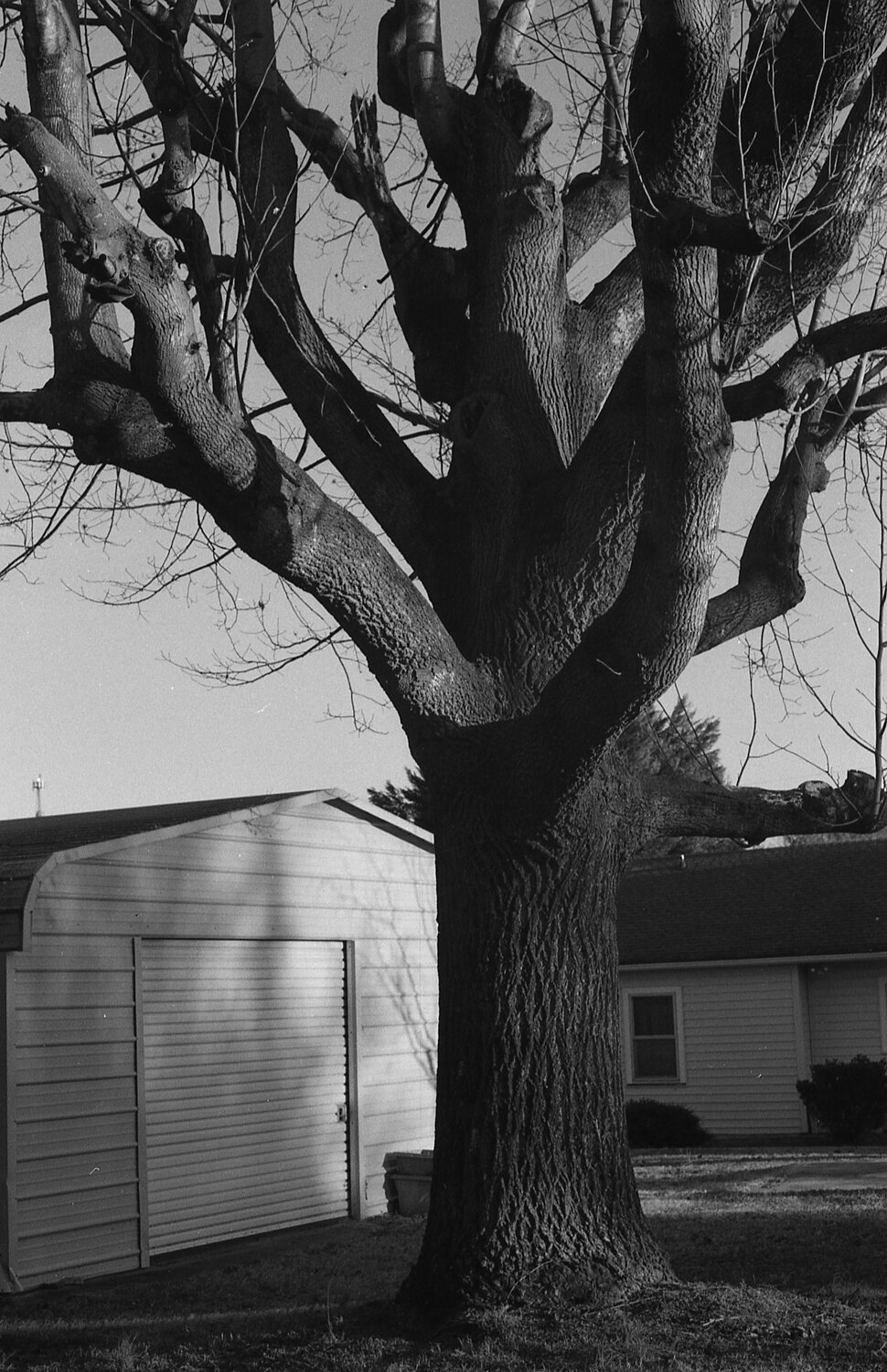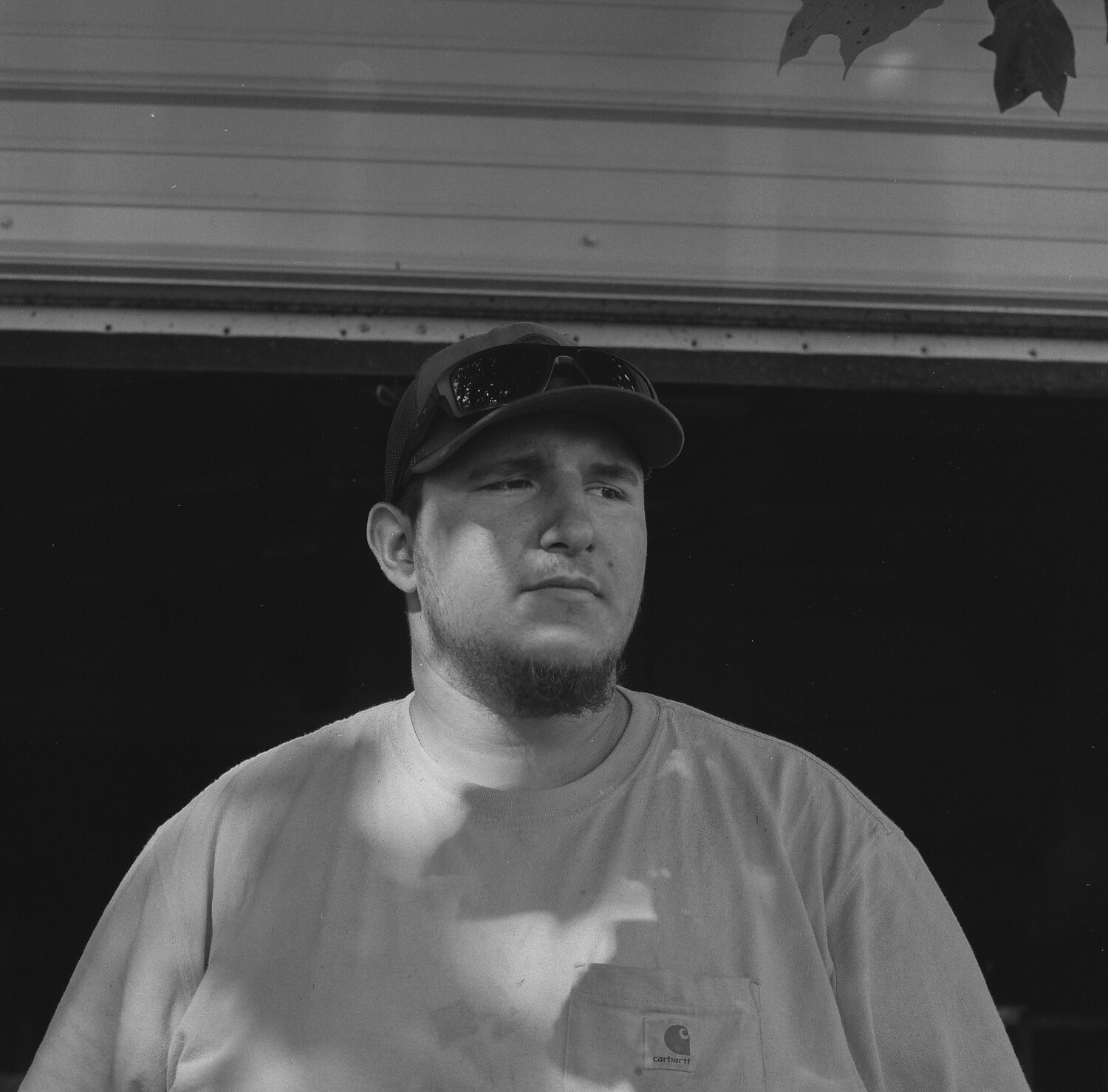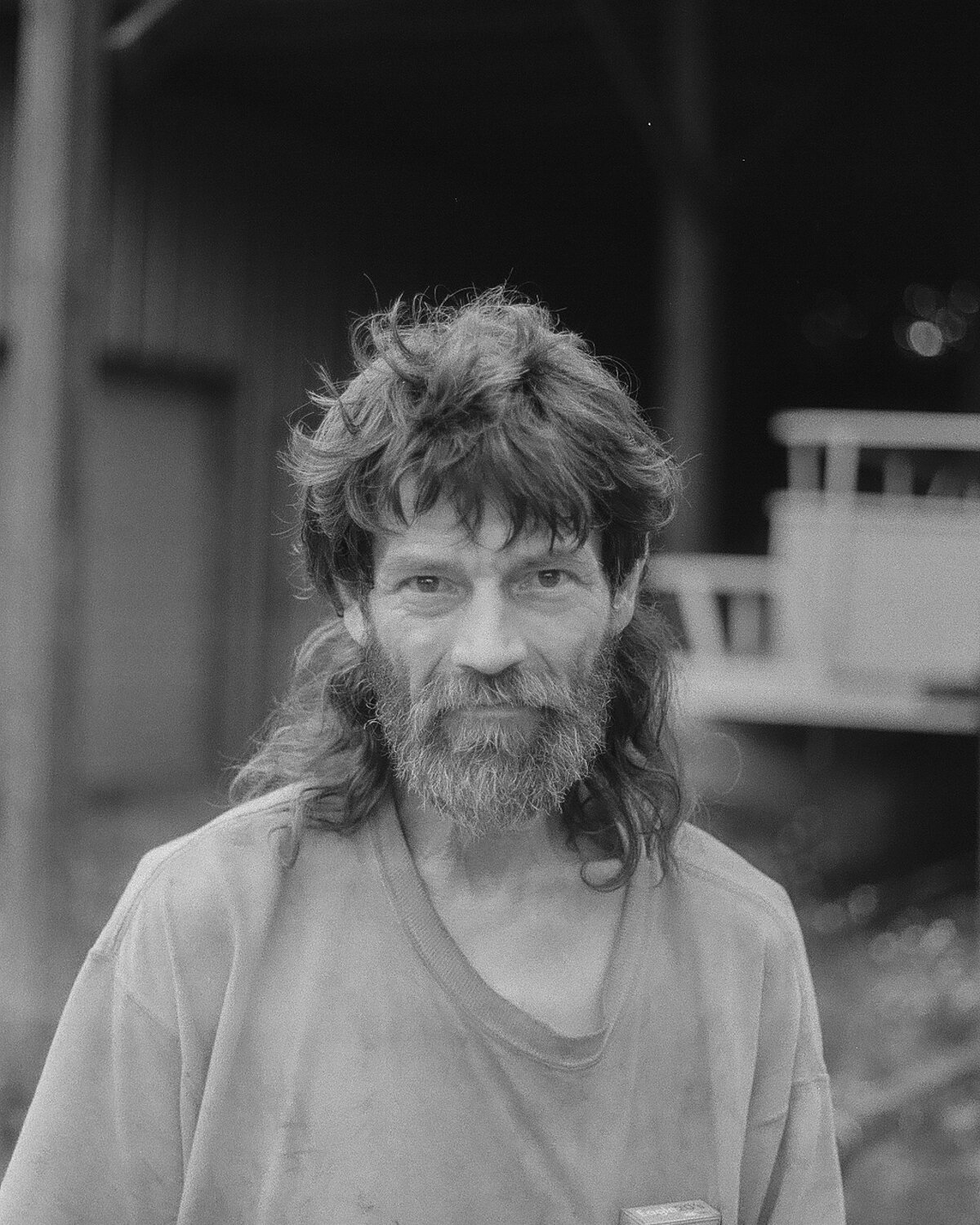Jesse Barber: The Space That’s Left
Pinus strobus
“Those trees are dead.” “They need to be cut down.” Mom and neighbor Rob stand with their hands across their brow like visors while they study the height of the trees. The seven Eastern White Pines stand in a row like soldiers guarding a king separating the two parts of our yard. Birds chatter and hop among the branches some fifty or sixty feet above us. A safe haven. A hole in the lineup of soldiers marks a fallen comrade, taken by a lightning strike, heavy rain and wind. A bad storm left him leaning towards my bedroom window. I listen to my mom and neighbor talk about cutting down these giants that have stood in my yard since well before we moved in. I let their chatter float over me, pretend that their words are like the language of the birds, unintelligible. I act as if it’s mere gossip, or like a conspiracy theory your uncle tries to tell you during a family Christmas gathering. I refrain from imagining what our yard would look like without their presence. Eight stumps like amputated limbs reaching out of the ground. Hearsay, wives tales, and gossip, if your neighbor says it, it must be true. That’s the law of the land. That, and the Bible. Doesn’t it also say that we’re to be good stewards of the land? What they teach at the college tells me we shouldn’t cut those trees down. I think about the years of sun, rain and wind captured in their heartwood, caught in their limbs. It’s a good thing mom doesn’t have the money to cut those pines down. It’s a sad thing too.
Chapel of Rest
“Pray without ceasing.” My mother and I emptied out my dorm room, they told us we had to move out by Friday. On our way home we stopped by the Chapel of Rest down in Happy Valley. We visited the home of a dear friend of my mother that had recently passed. Stage four lung cancer. The news of the unfolding pandemic was coming at that time by the minute. Twitter, email, NPR, checking what would be happening next with new detour signs being deployed as closures began to happen. But here we are in Happy Valley, N.C. The world around us only expanded as far as the next mountain ridge across the way. The sun was setting, turning the valley to a river of gold and green. No news from the White House could change the beauty that unfolded in the natural of here. Somewhere over those ridges, outside of this valley was a whole world full of uncertainty. Doctors and nurses scrambling to treat and diagnose a flood of patients. Families traveling from abroad, trying to make it home before whole countries would shut down. “May there be peace in the valley for me, I pray.” We pulled off the side of the road onto a gravel drive that goes up a hill, pulling up to the side of the Chapel of Rest. A relic of the old time religion that my mother was raised in. The dark stained wood that clad the inside soaked up the light cast by the low hanging sun. I looked out the antique windows, the world outside splotchy from the aging panes. I thought about this valley and how time felt like it stood still here. As if time passed over from ridge to ridge and left this place the same. How people might have walked down the dirt road on Sunday morning to attend church. An old man with his hands in his brown twill pants, his “Sundey best.” Children running ahead of their parents, boys in their suspenders kicking up dust as they ran. “And on the seventh day He rested.” Mom walked to the altar, kneeled down, clasped her hands together and prayed. I stood, irreverent in this building that felt more like a museum than a place of worship. My reverence came in the golden glow cast along the hillsides and through the windows. Through the lives lived in this valley untouched by time, by the world outside. I wondered what she prayed for. For the health of her boys, me and my brother? Did she pray that the Lord would take care of this pandemic, that all of this was in His hands?
USDA National Invasive Species, Ligustrum villosum. Chinese Privet
Neighbor Rob says all you have to do is buy one of those weed sprayers, the kind with the pump on the top and a nozzle that selects the way you want it to spray, fill it up with diesel and burn it. It took five gallons of diesel for the weeds in his yard. And diesel only costs, what, two bucks and some change? “How else are you gonna get them weeds out of your yard.” Mom and I piled up the branches and vines in the bottom yard. Burn piles for later when the burn ban ends. We’ll need more diesel then. This time of social distancing has allowed space to tend to the land, to identify its parts, read the bark and leaves. Recognize what belongs and what doesn’t. Invasive. I wonder if the natives mind. Birds come and nest among the Chinese Privet, eat their fill on the berries produced by these trees and multiply them in return. Seems like a mutual relationship. Below the leaf canopy of these densely growing thickets, the soil is limited in space and proper sunlight, choking out the native plants that would otherwise be growing there. I wonder if there is space for both. To allow both to grow side by side. Isn’t that the story of our current world, one that has people displaced from their native land, invasion into another, a melting pot of cultures and identity? The world is intertwined, the natural and unnatural, native and non-native. Eras past of travel and expansion, wars and migration. The Chinese Privet is but a drop of water in a bucket of this historic anthropological crisscrossing. Somewhere else, in some other soil this plant is considered natural and is welcomed, here we place it on the list. Invasive. Neighbor Rob sprays diesel from his RoundUp can along the row of vines and tree stumps that stood as a natural wall between my driveway and his backyard. He does this as milled and treated, number two grade Southern Yellow Pine, cut into uniform dimensions sits in a stack on his driveway, the ingredients for a fence. A welcomed solution in his mind in resistance to the drifters and unnamed people that walk among our properties at random hours of the night. His deterrent for invasive species on his land. This space we share, brought to an imbalance under the guise of security. A thicket of sorts, choking out the potential for new growth.
Jesse Barber is a documentary photographer based in the Appalachian region of North Carolina. His work focus's on rural community and the importance of traditional values and relationships with labor and religion on the culture of these communities. He is passionate about using photography to bridge gaps, awaken new perspectives, and expand our understanding of community. He has engaged with people in their stories from mill village workers in rural North Carolina to Mayan coffee farmers in rural Guatemala. Through his experiences, he has gained knowledge as a photographer and storyteller. Growing up in the rural South, he has gained a first hand perspective of the small communities that draw meaning out of life in the mundane.
Below is a selection from Jesse’s ongoing project, May The Lord Bless you and Keep you in Good Health focusing on family, community, work ethic and faith in his rural hometown of Sawmills, North Carolina.

